#the interplay of life and death
Text
I don't want to be too mean about this because I know it's probably unconscious behavior but I would like cql fans who claim that cql does more justice to the female characters than mxtx because it ostensibly has more screen time for them to really reflect on why they trust a giant media monopoly that paired one of the most important independent female characters with a man she had no chemistry with in the original text more than an independent young female author whose entire first book was made up of critique against popular media that relegates female characters to collectible love interests
#looking at the notes on that qingxian post that say i wish they made her live but took away the het romance : (#like i get what youre saying. dont get me wrong i would give my left nut for wen qings life because i love her. but do you think that#perhaps her death was symbolic not of mxtx just not knowing what to do with her and more about how the structure of mdzs sexist society#could not allow her to live as a woman in a position of power. she chose to die too. she purposefully drugged wwx to sacrifice herself#her sacrifice was both as weighted and meaningless as wwxs. thats a theme of the book!#the weight of despair and sacrifice and how that interplays with making a better place for your descendents#anyway again not criticizing if you think wen qing shouldve lived !! i wouldve liked that too!! i think it would be awesome if she was#the fierce corpse. actually i heard rumors that in mxtxs first drafts she was revived and wen ning perma died? but idk how substantial thts#but just criticizing people who put so much stock in tencent for bringing them uwu pure gay romance unlike what that nasty independent#author whose ORIGINAL WORKS WERE ALL TAKEN DOWN FROM THE SITE SHE POSTED THEM ON BC OF CENSORSHIP#SO SHE CANT EVEN MAKE MONEY OFF OF THEM THAT WAY#lmfao#cql#cql discourse#the untamed
129 notes
·
View notes
Text
Aspects
My views on Homestuck's Aspects. Part of this analysis is the idea that Aspects have relationships to each other, each bringing the other about.
I will use my own custom Aspect symbols throughout, but the analysis itself is based on canon.
Space

Space is the Aspect of beginnings, of new things. Space experiments and improvises. Space cares about what is possible now, and cares more about the discoveries made in a journey than about a specific endpoint. Space is infinite discovery and potential.
Space is represented by art, fashion, atoms, and frogs.
Space is the color of the night sky, empty beyond human perception, endless and unfathomable but not featureless. Inky darkness, dotted by stars. Space has no color at all, which sometimes results in it using Sburb’s default texture.
Space is opposed to the Aspect of Time.
Space is the fundamental force of creation that gives rise to the duality of Life and Doom well as the unknown mysteries of Void.
Void

Void is the Aspect of the unknown. Of hidden, ill-defined things impossible for us to know or give names to. Void is the Aspect of true reality, of things on a spectrum, of quantum and biology.
Void is represented by water, darkness, and pumpkins.
Void is the color of deep waters, hiding what lies within; its color somewhere on a gradient, but impossible for humans to pinpoint or define no matter how long they stare; Void is the shifting hues of the color of the sky.
Void is opposed to the Aspect of Light.
The unexplored unknowns of the Void hide the untapped potential that is Space, leading to new creation.
Life

Life is the Aspect of agency and self-direction. Life is self-directed and idealistic; Life concerns itself primarily with what Life wants to do, not caring for obstacles or drawbacks. Life sees an infinitude of options, and picks the one it desires.
Life is represented by plants, food, coins, and wealth.
Life is opposed to the Aspect of Doom.
The ultimate freedom to do whatever one wants eventually leads to the ennui of Breath. The interplay of Life and Doom leads to defining one's self in Heart or hiding in Mind.
Doom

Doom is the Aspect of fate and constraint. Doom has burdens and limitations; Doom concerns itself with practical issues instead of lofty ideals. Doom sees no escape or negotiation, going with what others demand of you.
Doom is represented by skulls, death, and fire.
Doom is opposed to the Aspect of Life.
The practical matters and the knowledge of our limits leads to the endless toil of Blood. The interplay of Life and Doom leads defining one's self in Heart or hiding in Mind.
Breath

Breath is the Aspect of detachment. Breath goes with the flow, not caring about anything or anyone in particular; Breath does whatever feels right in the moment, not worrying about much.
Breath is represented by wind, leaves, and rivers.
Breath is opposed to the Aspect of Blood.
The freedom of exploration of and detachment of goals leads to the compromise and negotiation of Hope and to exploration of the self in Heart.
Blood

Blood is the Aspect of effort. Blood has lofty expectations, from both itself and others, and runs itself ragged to accomplish all of them. Blood cares intensely about what it does, without rest or thought.
Blood is represented by blood, sweat, stone, and iron.
Blood is opposed to the Aspect of Breath.
The exertion and toil of Blood eventually lead either to hiding in Mind or to the revolution of Rage.
Heart

Heart is the Aspect of self and emotion. Heart is a person's identity and definition, their emotions and their friendships and their biases. Heart goes with its gut. Heart cares about what its heart directs it to.
Heart is represented by music, hats, and horses.
Heart is opposed to the Aspect of Mind.
Heart’s loyalty and instinct lead to the upheaval of Rage and Heart’s caring nature leads to Blood.
Mind

Mind is the Aspect of thought and masking. Mind coldly adapts itself to circumstance, hiding the true self in order to blend in with what's acceptable. Mind is impartial. Mind weighs all the options, and picks the one most suited to the situation.
Mind is represented by masks, blindfolds, and scales.
Mind is opposed to the Aspect of Heart.
Mind’s bottling of emotions leads to the real detachment of Breath; and Mind’s adaptive nature leads to Hope.
Rage

Rage is the Aspect of rebellion. Rage is skeptical of what society presents as true, and fights tooth and nail for what it stands for. Rage riots and fights back; Rage would sooner bring revenge than healing. Rage fights for sudden change.
Rage is represented by fangs, beasts, and waves.
Rage is opposed to the Aspect of Hope.
In fighting against their shackles, one gains the newfound options of Life. Rage’s sudden changes forms half of the past events of Time.
Hope

Hope is the Aspect of diplomacy. Hope believes everyone is good at heart, and that everything could be solved if only everyone talked things out. Hope has blind faith and will sooner comfort a friend than hurt an enemy. Hope solves things slowly and steadily.
Hope is represented by religion, ribbons, and blankets.
Hope is opposed to the Aspect of Rage.
Hope’s compromises and negotiations lead to new shackles in the form of Doom. Hope’s slow changes form half the past events of Time.
Time

Time is the Aspect of the past. Time is concerned with traditions, patterns, and the inevitability of what came before. Time brings the authority of established rules and governance. Time looks to what was to decide what will come about.
Time is associated with gears, crowns, sand, and clocks.
Time is the color of a gear turning to rust, of blood leaving a vein, of a game timer running out. Time powers shine in all colors at once before they settle on one.
Time is opposed to the Aspect of Space.
The knowledge of the established patterns of Time leads to the knowledge and definition of Light.
Light

Light is the Aspect of definition. Light has clear rules, clear definitions, and clear answers. Light creates frameworks of understanding and puts things in black and white, right and wrong, relevant and irrelevant, which can sometimes lead to ignoring the gray areas between. Light is the Aspect of human knowledge of the world, our ideas, stories, and sciences.
Light is represented by the sun, fire, and compasses.
Light is the blazing color of the sun, impossible to look at for long, but shining its light everywhere, a white light that returns as a myriad of colors.
Light is opposed to the Aspect of Void.
The sharp delineations of Light ignore the gray areas outside definition, creating Void.
#homestuck#homestuck analysis#homestuck aspects#homestuck classpects#space aspect#void aspect#life aspect#doom aspect#breath aspect#mind aspect#rage aspect#hope aspect#time aspect#light aspect
458 notes
·
View notes
Text
Mastering the Art of Necromancy in Your Fantasy Novel

Hello fellow writers and conjurers of fantastical worlds,
In the tapestry of fantasy literature, few elements hold the allure and enigmatic charm of necromancy. The art of communing with the spirits of the departed, wielding the powers of death and undeath, and delving into the mysteries of the afterlife conjures a rich and eerie tapestry that captivates readers and writers alike. In this comprehensive guide, I shall help you embark on an odyssey into the realm of necromancy, unraveling its nuances, and harnessing its potent essence to enrich the worlds and characters within your fantasy novel.
Embracing the Essence of Necromancy
Necromancy is a mystical strand woven into the very fabric of fantasy literature, offering writers a gateway to explore themes of mortality, forbidden knowledge, and the uncharted territories beyond death. The art of necromancy beckons us to navigate the delicate balance between life and death, weaving a narrative tapestry that shimmers with eerie allure and spine-tingling intrigue.
Understanding the Arcane Threads of Necromancy
1. Unraveling the Nature of Necromantic Magic:
Necromancy encompasses a vast array of mystical practices, ranging from communing with spirits and animating the dead to harnessing the energies of the afterlife. Understanding the scope of necromantic magic is crucial when integrating it into your fantasy world.
2. Delving into Ethical Quandaries:
The art of necromancy often delves into moral ambiguity and ethical quandaries. As a writer, explore the complex interplay between wielding power over life and death, and the consequences it imposes on both wielder and world.
3. Crafting Necromantic Characters:
Characters draped in the shroud of necromancy carry an undeniably enigmatic allure. Whether they are enigmatic necromancers, vengeful revenants, or tormented spirits, imbue them with layers of depth, conflict, and the allure of forbidden knowledge.
4. Cultivating the Atmosphere of the Necromantic World:
Infuse your narrative with an eerie and otherworldly ambiance that resonates with the essence of necromancy. From desolate graveyards to spectral realms, let the setting itself exude an aura of haunting allure and metaphysical mystery.
5. Unraveling the Consequences:
The tendrils of necromantic magic often carry unforeseen consequences. Delve into the ripple effects of wielding such potent powers, shaping the fate of both the user and the world they inhabit.
Enchanting Your Narrative with Necromantic Flourishes
1. Rich Lore and Mythos:
Weave an intricate tapestry of lore and mythos surrounding necromancy, invoking ancient rituals, mysterious tomes, and the whispers of spirits to deepen the mystique of this arcane art.
2. Enigmatic Rituals and Spells:
Craft spells and rituals that exude an otherworldly aura, invoking the presence of specters and the echoes of forgotten souls to imbue your narrative with the esoteric essence of necromantic magic.
3. Ethereal Companions and Servants:
Bring forth spectral allies, reanimated guardians, and enigmatic spectral entities that serve as both catalysts and enigmas within the narrative.
4. Narrative Pivots and Twists:
Infuse your story with unforeseen twists and narrative pivots that stem from the tendrils of necromantic magic, shaping the destiny of characters and worlds with its potent influence.
Mastering the Art of Responsible Representation
1. Portraying the Nuances of Necromancy:
Embrace the multifaceted nature of necromancy, delving into its allure and peril, and steering clear of reductionistic portrayals that fail to capture the complexity of this enigmatic art.
2. Navigating Sensitive Themes:
Acknowledge the sensitive themes surrounding necromancy, portraying its enigmatic allure while respecting the boundaries of respectful representation and narrative integrity.
Navigating Ethical Quandaries and Moral Ambiguity
1. Delving into the Temptation and Consequences:
Illuminating the temptations and consequences inherent in wielding necromantic powers, delving into the moral turbulence and ethical crossroads that define the narrative and its characters.
2. Shaping Characters' Moral Journeys:
Embrace the moral odysseys of characters enmeshed in the tendrils of necromancy, illuminating their struggles, choices, and the transformative impact of their interactions with the enigmatic art.
Embracing the Mystique of Necromancy
The enigmatic tapestry of necromancy holds the potent key to unraveling the mysteries of death, whispered secrets of the afterlife, and the spellbinding allure of enigmatic power. Embrace its allure, wield its essence responsibly, and watch as your narrative flourishes with a haunting, spine-tingling allure that captivates readers far and wide.

Warm regards and unwavering encouragement on your enigmatic odyssey,
Ren T.
#creative writing#writing#writing tips#writers block#writeblr#thewriteadviceforwriters#on writing#how to write#writers and poets#witchcore#necromancer#necromancy#magic#high fantasy#worldbuilding#magic system
358 notes
·
View notes
Note
Sorry if you’ve already answered this, I’m having trouble finding different posts in your blog.
I know a lot of your asks are more practical-related, but how do you suggest fully encapsulating the horror and tragedy of war in a (fantasy) battle scene? I really need that emotional and gory impact but it also to seem reasonably realistic.
My favourite references are Battle of the Bastards in GoT and scenes from Lord of the Rings.
Thanks!!
Martin and Tolkien are not two authors I’d ever expect to find together when discussing thematic and abstract concepts like the horrors of war in their writing. One of them is extremely deep, and the other is a puddle. Neither of them are particularly “realistic” but only one of them claims that pretense while drawing from real history. If you’re wanting horrors of war, you’re much better off moving away from Martin and taking a gander at the actual War of the Roses.
Let me explain.
Tolkien served as an officer during World War I. By sheer body count, The Great War was one of the most bloody and brutal wars in human history. As a point of reference, over a million soldiers died during the Battle of Somme. Perhaps as importantly, World War I killed the cultural concept of the Summer War. Before World War I, the British upper class viewed war as a game. War was an adventure, something young men did between reaching manhood and getting married. Watson from Sherlock Holmes is an excellent example of the end result for this particular outlook. They figured they’d go off, have some jolly good fun, get a few scars, and be back in a few weeks in time for tea. What they got was a meat grinder. Two of Tolkien’s close friends died during the war. He also lived through the bombings during World War II while working as a professor at Oxford, he experienced the devastating effects that war had on the civilian population first hand, and, likely, saw a few of his students die. Despite his hatred of allegory, the man was working through some shit in The Lord of the Rings.
If you’re interested in learning more about World War I or even about effectively demonstrating the horrors of war, I do recommend reading All Quiet on the Western Front. I read it once in high school (more years ago than I’d like to admit here) and, much like Elie Wiesel, it has stuck with me. It was also such an effective anti-war novel the Nazis banned it and it was one of the first books they publicly burnt, so you know it’s good.
Back to Tolkien.
What they don’t tell you about fantasy is that it’s real life, just with elves and dwarves and magic. The real world forms the foundation of fantasy and it’s the humanity of the emotional experience in war, the good and the bad, with both ends cranked all the way to eleven that really makes Tolkien’s work so impactful. LOTR is operatic by design, but what keeps the narrative from falling into melodrama is the core thematic message underneath the pageantry. One of the major themes is hope, which gets symbolized in light, and hope’s interplay with despair, symbolized in darkness. Not just a rosy view of it either, but the genuine struggle to keep the light burning against all the overwhelming reasons to give up or give in. Tolkien allows his characters to be corrupted and redeemed, their struggle with temptation before ultimately choosing the better path or failing and falling into darkness. He commits to the idea that hope can be restored in the unlikeliest of places.
Boromir’s death is, perhaps, one of the best examples of Tolkien’s philosophy in action. Boromir is a character we’re not sure of, he wants the one ring from the outset, he’s the only one advocating that it shouldn’t be destroyed. The hearts of men are easily corrupted. When he tries to take the ring from Frodo, he falls into his worst instincts and breaks the Fellowship. But then, against the overwhelming flood of Uruk-hai, Boromir tries to save Merry and Pippin. He fights wounded, shot again, and again, until he’s felled by twenty arrows and he fails. Yet, in his failure he restores Aragorn’s hope in his people, gives him a reason to fight for Gondor, and inspires the audience to believe in Man’s potential for greatness.
Tolkien could have left Boromir in the dark, but he didn’t. He could’ve given into cynicism, but he didn’t. In every adaptation, Boromir’s death never fails to get me bawling. Boromir is both good and bad, both dark and light, his best and worst instincts are driven by the same underlying, sympathetic reason—his desire to save his people and fulfill his duty to his father.
On the whole, I find Tolkien’s presentation of the human condition and war to be more compelling and realistic than Martin’s. Tolkien’s underlying themes have more in common with All Quiet on the Western Front, Saving Private Ryan, and HBO’s Band of Brothers. For all that his characters often feel larger than life (by design, he’s telling an epic) there’s always a grounding quality that allows the audience to connect with them. Whether we agree with Tolkien’s core thematic message or not, Tolkien genuinely has something to say about warfare and its effect, both on personal and world changing levels, and he communicates that message very well.
The irony about the “horrors of war” isn’t about the horrors of war. Thematically, the “horrors of war” is about who we choose to become in the face of them when trapped in the crucible. Do we rise to our best selves? Do we fall to our worst? When every illusion about who we believe we are is stripped away, what’s left? It’s an existential question, not a “realistic” one.
You can’t write about the horrors of war in fiction if you have nothing to say about war, humanity, and its effects. All you’ll end up with is gore for shock value. The world becomes hopelessly depressing, and, in the end, all the blood turns brown before it’s finally shat out.
Hi, Martin.
Don’t get me wrong, Martin is a very skilled writer. His prose is genuinely beautiful and his first book in ASOF, A Game of Thrones is actually a pretty decent deconstruction in the traditional fantasy narrative and a fairly realistic treatment of how events would go for the standard well-meaning fantasy protagonist. And that’s… the deepest we get.
Martin comes out of the 24/Joss Whedon death for shock value school of writing and the land of Iron Age comics that doesn’t have anything to really say beyond, “people suck.” Underneath it all is a level of cynicism in the human condition that would make Garth Ennis blush. The deaths are just shock value. There’s nothing more to it than that. Once you’ve acclimated to the gore, there’s nowhere else to go and nothing else to think about. Ironically, out of his contemporaries, Robert Jordan is better at giving both war and death in his narrative lasting effect, driving character growth, and real meaning.
Martin and Tolkien are opposite ends of the spectrum in their approach to war and their outlooks are utterly incompatible. One of them is a complete cynic and the other is facing himself honestly, openly, fearlessly, and without a smidgen of irony. (The true irony here is that the latter is the Englishman.) Following Martin’s blueprint won’t bring you to a Tolkien outcome. Tolkien’s genuine emotion is the subject of mockery in Martin’s world. Season 8 may’ve been clumsy and infuriating, but it was the natural end of Comic Book Iron Age cynicism. There are no good people, people with power can never be trusted, and all heroes, no matter how noble, reveal their true colors as villains in the end. As Christopher Nolan said, “You either die a hero or live long enough to become a villain.” This philosophical outlook may be sold as realistic but it’s really just Political Both Sidesism, Fantasy Edition.
The irony is that the real history Martin draws from, The War of the Roses, is simultaneously crueler, kinder, more noble, more horrific, more impactful, and ultimately more hopeful than Martin’s own work. And this was post the Hundred Years War and all the wars that preceded it.
I bring you, the Duality of Man.
If you want to write a realistic battle scene, start with real war. If you want to write about the horrors of war, start with real war. Pick a war, any war, and dig in. Reading the experiences of others is a way to gain insight into experiences you yourself don’t share and start to process the different philosophies born out of those experiences. The horror of war is a human one.
The most important lesson is that you won’t get there by focusing on the battle itself. To truly feel the impact, every character needs to be carefully built from the very beginning with a through line to every horrific event that happens to them. If you want to learn how to do that, then you need to go study every single war movie from good to bad (including the jingoistic rah-rah ones) like Apocalypse Now, Saving Private Ryan, Battle for Iwo Jima, etc, to really start internalizing the underlying storytelling structure and character design formula that makes those films tick. There’s no one better at portraying the horror and humanity of war than the war film industry. Part of what makes the best of these films really good is their willingness to allow their characters to be emotional and vulnerable. Which you won’t find in a lot of fantasy novels that run on machismo, but is the secret sauce that gives Tolkien his impact.
Having the confidence to allow your characters to struggle, be vulnerable, experience humiliating circumstances, and appear weak is an aspect of writing that a lot of men and women struggle with. Cynicism is a form of self-protection to keep those emotions away, to keep one from being emotionally invested, and is a means by which we protect ourselves from being hurt. We may portray cynicism as the more realistic reality but it’s just a cloak we hide behind. Martin’s approach to warfare is less realistic than Tolkien’s. Tolkien’s characters approach warfare with an eye toward protecting their civilians, safeguarding their future, or, in the case of his villains, focus on genocide. War for Tolkien is the eradication of civilization and the destruction of the future. Characters from experienced combatants to innocent civilians are willing to risk their lives for a world and for the people who matter to them. Martin has the Summer War. It’s there in the title, A Game of Thrones. An entertaining charade of musical chairs. And while all of his characters are chasing power, almost none of them have any sort of vision or goal for the future beyond the accumulation of more. In Martin’s world, the only way to truly win is not to play, but in the real world playing is the only way to create the world you want. Cynicism ends with no seats at the table and no means to change or save anything.
It’s funny because England during the War of the Roses had been in a state of near constant warfare for hundreds of years with their own domestic powers and France prior to the War of the Roses kicking off. The concept of a Summer War didn’t really exist for the medieval nobility. Much as we joke today about war being a game for medieval nobles due to their ransom protections, it really wasn’t. The peasantry was also much, much more dangerous en masse than they are in ASOF. They drove traveling monarchs to hide in monasteries plenty of times and, while that’s funny, it’s not actually a joke.
Now, picture Joffrey dragged off his horse in the middle of a riot and having his skull crushed by a local fishwife right before being trampled into a bloody, unrecognizable pulp by sharp hooves.
Or enjoying the Agincourt bathing route.
You’re welcome.
-Michi
This blog is supported through Patreon. Patrons get early access to new posts, and direct access to us through Discord. If you’d like to support us, please consider becoming a Patron.
1K notes
·
View notes
Text



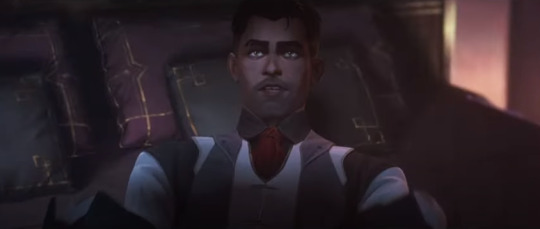

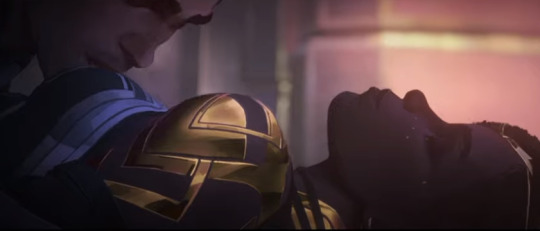


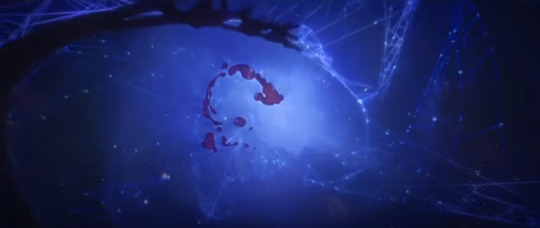


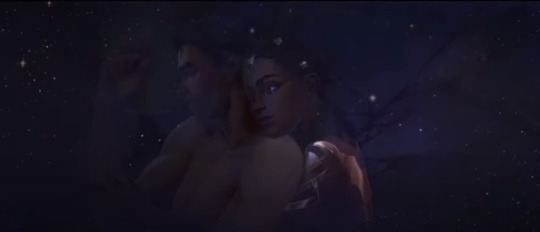
Le Rite sacré de l'amour magique - The Sacred Ritual of Magical Love.
Mild NSFW
I feel so sad whenever I read about how this scene was 'cringe' and 'unnecessary' and 'awkward' - given it's visually and narratively a feast of subtext, and full of delicious tidbits about the essential nature of Hex-tech as a magical system.
It also wonderfully highlights the fusion of a pure source powered by the crystallization of celestial bodies with the viscerality of blood as a sacrificial link to esoteric knowledge - but at the cost of forfeiting one's 'tether' to humanity.
We have Viktor literally having a brush with death and nearly transcending the physical plane, while the Hex-gem takes away his life force and infuses it into its internal matrix - a literal melding between man and magic that, sadly, also requires the forfeiture of his fundamental humanity.
All while simultaneously, Jayce and Mel are making love, in a gorgeously animated sequence which is allllll about prioritizing female pleasure (and showing a female orgasm onscreen in a PG-13 kids' show - like, y'all, that takes balls, given if it were a mainstream Hollywood film, it'd earn an NC-17 rating or get slapped with a big ol' R for its trouble.)
And there's so many wonderful interpretive lenses we can apply to the juxtaposition between Viktor and Jayce - all while sex, death and magic are happening onscreen. On one level it represents Jayce's seduction, and by proxy corruption, at the hands of Mel - all while the Hex-core is corrupted by human blood that belongs to a man who has grown up in toxic environs and carries their lived legacy in his body to the point it's killing him from the inside out.
And on the other hand, we can see it as a divergence between the two routes of magical power as a means to channel transcendent knowledge - one through the brutal solitude of Viktor's path, which will ultimately set him in Machine Herald territory, and have him casting off his 'earthly ties' - right down to everything that makes him human. For him, the Hex-core is knowledge to be penetrated and absorbed, and its secrets require a sacrifice of the highest order. And on the other hand, we have Mel and Jayce literally melding together with astral imagery in the background, to show a different route that magic allows one to take, namely where two life-forces come together and engender something sublime between them (or possibly even make a baby? It's a popular fan theory and I can certainly see the potential.)
Magic, for Arcane, seems to be a means of interconnecting different facets into a unified whole (not unlike the way the series mirrors and makes parallels between a host of characters and circumstances, almost like they're different faces of a Hex-gem). And this scene sums up so powerfully what that system of science and magic is about - and the extreme highs and lows it can take you to.
And of course, right at the heels of this intense interplay between sex and death, two different types of la petite mort, we have the ultimate confluence between the two:
Rebirth.
And who better to embody it than two characters who carry their dead selves behind them like corpses shackled to their heels, in different ways?
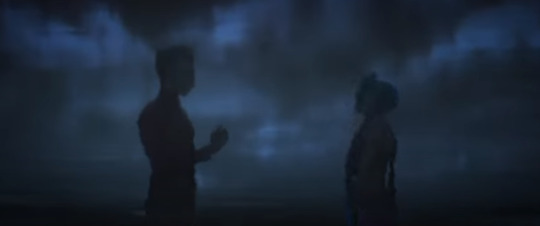




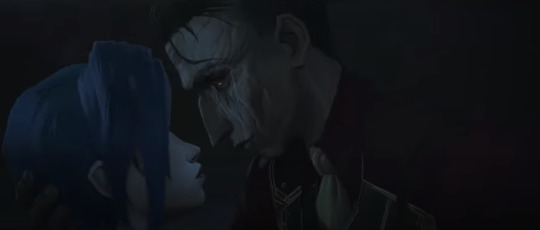


Tbh I read these scenes as a trilogy for explaining Arcane's magic system - with Jinx being that final spark - literally the Powder - that blasts Hex-tech in all its destructive and yet empowering potential wide open.
Also a separate aside, I find this scene way more uncomfortable than the earlier two, simply because the interactions between Silco and Jinx are so fraught and charged. The first time you watch it, there's that almost-kiss Gotcha! that makes you spit-take, like: Wait are they...? And then the whiplash is so extreme because in a blink it goes from uncomfortably full of romantic undercurrents to strangely tender, verging on reverent. A moment of perfect and pure trust between two monsters whose entire conception of trust has been trampled into shards that they now use to cut others with.
But for me the pinnacle is this scene.

Other fan theories have also stated that they see Jinx as sort of the unwitting embodiment of the Hex-crystal's power paired with the dark potency of Shimmer, and for me this is one of the biggest visual metaphors. This girl, caught in a blissful gyre of fulfillment and serene frenzy, unmade and then remade, as she deciphers the codes of the Hex-gem and feels, for the first time, at one with herself and with her potential to unlock secrets and usher in miracles.
And madness, too, but that's a whole 'nother analysis.
tl;dr - Please Fortiche. Release an art book. I will shell out the big bucks<3
#arcane#arcane league of legends#arcane silco#silco#arcane jinx#jinx#silco and jinx#arcane jayce#arcane mel#mel medarda#meljay#mel x jayce#jayvik#arcane viktor#viktor#jayce arcane#jayce talis#viktor arcane#arcane meta#arcane headcanon#arcane headcanons
390 notes
·
View notes
Text
A Game of Thrones' first chapter being Bran I and last chapter being Daenerys X, and those two chapters being in such strong conversation with each other will forever be what sells me on ASOIAF as a series. The set-up is just it. Consider: AGOT begins with an execution, of Gared the Night's Watch deserter who witnessed The Horrors. It's presented as a part of Bran's coming of age, this complex situation which he's now old enough to grapple with. Gared is sympathetic to us as readers (he witnessed The Horrors!!!) but his life is forfeit. He dies by Ice. After, Jon and Robb argue over whether he died brave or afraid. Ned says it doesn't matter—death is necessary, it is part of a larger Cycle which Bran will one day be a part of though he shouldn't enjoy it any more than he denies it... what makes it necessary though? What is this cycle—because if it's only about justice, well, Gared's execution doesn't feel just. Now we have our first true question of the book.
Daenerys X follows a similar format with a sympathetic Mirri Maz Duur having forfeited her life after killing an unborn Rhaego. Why? Well she also witnessed The Horrors. This time in the shape of a Dothraki invasion & the Stallion Who Mounts The World prophecy. She is set to die by burning (ice and fire babyyy). In the moments before, she appears defiant... but when Daenerys says it does not matter how she dies, then fear creeps into MMD's eyes. Again the interplay between bravery & fear. Again the seesaw, the balance. So now we can return to the first question. Why is this necessary?
Because only death can pay for life... and because you should strive for life. There should be hope and yearning for birth, for rebirth. Gared & Mirri have both given up on their own lives due to their fear while Bran asks, and Daenerys answers, that yes, you must reach for life even when life as you know it has ended. It's a coming of age for Daenerys too. When the dragons burst forth their newborn cries are called music—it's a song!! A Song of Ice and Fire. So yeah. Five fucking stars.
190 notes
·
View notes
Text

DESTINY.
TW! cursing, death.
angst! centric.
g. satoru x gn. reader.
DESTINY. that capricious force akin to the bittersweet conclusion of tragic fates, had long since wielded its cruel hand.
yet, amidst the delicate interplay of life and death, a singular anomaly emerged—satoru gojo—an irresistibly peculiar being adorned with gifted endowments bestowed by the very heavens themselves.
he, the self-proclaimed harbinger of destiny's blessings, carried within him a profound sense of purpose and significance.
alas, it is a lamentable truth that even the possession of such a grandiose title holds no power to rescue or shield those in need.
forlornly, we witness the bitter reality that the mere proclamation of a lofty designation cannot serve as a panacea to alleviate the trials and tribulations of others.
"don't even try closing your eyes."
young, naive and foolish. the honoured one beseeched, his countenance etched with an unmistakable worry—bereft of the customary shielding of sunglasses that customarily veiled sight of his otherworldly irises of azure.
his resplendent eyes—now bared—gleamed with a mesmerizing confluence of sentiments.
it was an unprecedented spectacle, witnessing him so palpably anxious and emotionally invested.
deep within, he harbored a profound remorse, cognizant of his inability to employ a reverse technique—that elusive skill—to aid you in this despair-induced juncture.
"shoko's on the way. she'll heal you."
"quit being so damn stubborn and listen to me."
he assured confidently, his typical arrogant utterances suffused with both conviction and hope.
yet, as he spoke—it appeared as though he inadequately grasped the gravity of your state or purposefully averted his gaze—fixating instead upon the illusory prospect of an inevitably fruitless convalescence.
no, you’re not dying.
he mindlessly repeated to himself—as if caught in an bewitching refrain that echoed ceaselessly within the chambers of his delusions.
the words—like a hypnotic melody—entwined themselves around his thoughts, weaving a tapestry of false reassurance.
in the grip of his illusions—he clung to this fragile mantra, desperately seeking solace in its rhythmic cadence.
yet, deep down, a flicker of awareness whispered of the truth obscured by his fervent repetitions.
reality—unyielding and immutable—loomed ever closer, despite his desperate attempts to stave it off with a haunting refrain.
with a blend of earnest gravity and feigned jocularity—despite the quivering timbre of his voice—he appended,
“don’t you dare die, or ill never let you live it down.”
his eyes bore into yours with an unwavering intensity that seemed to penetrate the tumult enfolding you—unveiling a vulnerability he seldom divulged to others.
in that gaze, the tenacity of his resolution and the profoundness of his connection to you became palpable—as if the burden of your well-being rested solely upon his shoulders.
“live it down, you say?..”
a desiccated chuckle escaped your lips as the wretch persisted. how imbecilic could this fool possibly become?
“satoru..”
not long after, your body convulsed with a fit of coughs triggered by the mere act of speaking, the fragility of your condition became starkly apparent.
yet, even still—it was unmistakable that he clung to denial, unabashedly rejecting the unassailable truth.
yes, you were dying—indeed, you were teetering on the precipice of demise.
there existed naught but remorse and lamentation.
"stop talking! for fucks sake, y/n—“
he inhaled a tremulous breath, as if seeking composure amidst a tempestuous tempest raging within his soul.
his eyelids clenched shut with an ardent fervor, as though he were frantically endeavoring to elude the clutches of reality in one final, desperate gambit.
“please—just..”
“just listen to me, and do as I say. please.”
with each uttered word, a sense of desolation burgeoned, casting a somber shade upon his countenance.
“y/n..”
yet, these words bore a weight surpassing mere despondency. every syllable dripped with a venomous essence, tainted by a profound self-abhorrence that seemed to turn inward.
it was as though his very voice had transformed into a conduit for self-loathing, a vessel through which frustration and disillusionment coursed.
he berated himself for completely contradicting his egoistical claims.
he despised—loathed himself.
he detested his own folly, castigating himself for what he perceived as a feeble inability to lend aid. the underlying contradiction between his self-aggrandizing proclamations and his actual capabilities stoked the fires of his self-directed animosity.
within the depths of his being, an infernal tempest raged, a battlefield of inner turmoil where he grappled with the demons of self-hate. the echoes of his own voice reverberated, seemingly magnifying the intensity of his internal strife, amplifying the magnitude of his self-loathing.
he loathed the hold you have on him, stirring up a storm of emotions within his being. the turmoil you evoked within him was a source of deep resentment.
but above all else, what he despised the most was the inexplicable extent to which he cared for you.
he despised the fact that, despite everything and anyone else, he couldn't help but like you, adore you, and ultimately choose to love you.
the intensity of his hatred stemmed from the realization that his heart had chosen a path that he had not intended to follow. he resented the vulnerability that loving you exposed within him, and the power you held over his emotions.
in the depths of his inner turmoil, he grappled with conflicting emotions. while he may have wished to resist and deny the depth of his feelings, the truth remained that his heart had made its choice, despite his best efforts to resist it.
this contradiction between his hatred for the circumstances and his genuine affection for you created a profound inner struggle, intensifying his frustrations and exacerbating the complexity of his emotions.
it frustrated him, angered him even, that his emotions had become entangled with your presence. the vulnerability that accompanied this caring, this attachment, felt like a weakness he resented.
in his innermost thoughts, he grappled with the paradox of his feelings. the profound disdain for the impact you had on him clashed with the undeniable truth that his heart held a deep and unexplainable affection for you.
it was a conflict that gnawed at his core, leaving him torn between his aversion and the undeniable pull of his care.
"oh?..what have we here...”
despite the gravity of your state, you conjured the wellsprings of fortitude to articulate phrases—effectively jolting him from his reverie, as he clung to your every word like a vital thread. each syllable echoed with a poignant cough, reverberating through the fragile contours of your agonizing form.
the inexorable verity loomed, an inescapable specter—your grievous wounds would inevitably claim your life, a harsh reality especially within the realm of sorcerers from which there was no evasion.
and so, in a hushed whisper, your voice tapering off amidst another bout of coughing, the violence of it serving as a stark reminder of your vulnerability. yet, deep within, you harbored a profound cognizance of the path that lay ahead.
"satoru gojo... of all people.”
you provocatively taunted, your words imbued with both resignation and a trace of sorrow.
in that very moment, you apprehended the cruel irony of their circumstances, the whimsical caprices of fate that had entangled their lives. the weight of your impending fate pressed upon you, and you couldn't help but ponder if it would elicit any emotions within him.
"--are you going to cry?”
with a subtle curl gracing the corner of his lips, he meticulously observed every movement, every flicker in your eyes, and every breath you took. he made a conscious effort to etch each detail into the recesses of his memory. It seemed as though you possessed an uncanny ability to perceive his emotions with remarkable clarity, despite his best efforts to conceal them.
however, as his expression shifted to one of solemnity, a faint trace of melancholy colored his features.
the question you posed had struck a deeply personal chord within him, one he never anticipated having to confront.
your words resonated within the sixteen-year old male, his unwavering gaze fixed upon yours. a sense of anguish mingled with the realization that you, y/n, had seen through him like an open book.
unable to suppress the tears that welled up in his eyes, he swiftly brushed them away, striving to maintain a composed facade.
"no, of course not.”
his response emerged, delivered with the expected composure and confidence. yet, a glimmer in his eyes betrayed the facade, hinting at an inner turmoil that consumed him.
the conflicting emotions etched upon his countenance, the raw sorrow intertwined with resolute determination, were familiar sights you had come to recognize during your time together.
at the very least, he had been stirred by the irony of the situation. but what lay beneath the surface?
his lips curved into a solemn smile, though his eyes conveyed a different tale altogether.
he couldn't help but smirk slightly in response to your teasing, his unwavering irises never once straying from your perfect ones. how dare you utter such words...
you managed to elicit a smile from him, causing his typically smug facade to momentarily contort into a faint frown, though his expression swiftly returned to its customary coolness.
the gravity of your condition had not escaped the impact it had on the sorcerer standing before you. however, it appeared that the full severity of the situation seemingly had yet to fully dawn upon his young fellow. and with mere moments remaining before your impending demise...
"me? cry—over you? what a joke.”
he retorted, pausing momentarily. his smirk faltered—as if on the precipice of speaking with a tone devoid of jest—as if the barriers he had erected had momentarily crumbled.
"do not flatter yourself. tears may suite me, but I don’t need that amplifying my perfection.”
regardless, his voice remained low and harsh, devoid of the usual playful edge and trademark amusement that characterized his interactions with you.
though the expression in his eyes remained unaltered, a certain stiffness was evident in his speech, as if he were still uncertain where else to direct his overwhelming thoughts and emotions.
as he continued to observe you, a solemnity settled over his previously neutral features. you could sense his burgeoning grief, his thoughts racing against the inexorable passage of time, yearning desperately for even the faintest glimpse of a solution.
his response was a feeble attempt to mask his emotions, his voice quivering, and his eyes still shimmering with unshed tears.
though his words denied it, his body language spoke volumes.
his pretty cerulean irises glistened with unshed tears, his heart pounding in his chest. he had anticipated her demise for far too long, believing he had grown accustomed to it, deeming it an inevitable outcome.
but now, as your final breaths escaped your lungs, the weight of your departure struck him with the force of a thousand bricks, reality seeping in for the first time. he had failed. his overwhelming pride and hubris had blinded him to the possibility of defeat. he had failed his long-time peer—his classmate, his friend.
the weight of failure bore heavily upon him, for he believed he had let down the one person who held the most profound place in his heart—the one he cherished above all others romantically, the soul he held dear.
the depth of his love for you only amplified the agony of his perceived failure. he blamed himself for not meeting the expectations he had set, for not being able to provide the happiness and fulfillment you deserved. the pain of falling short in your gaze was an unbearable burden he carried—leaving him haunted by the knowledge that he had failed the one person who truly held his heart.
"...yes, i am going to cry, you idiot."
contrary to his perception, it was not you who struggled to accept your fate, but rather, it was he who clung to seemingly everlasting denial.
while he grappled with the reality of the situation, you had long since come to terms with the inevitable outcome. you had made peace with the circumstances that destiny had dealt, finding solace in the acceptance of what lay ahead.
the dichotomy between your acceptance and his denial created a rift, deepening the emotional chasm between you.
despite your readiness to face the truth, he remained entrenched in a state of refusal, unable to confront the impending reality.
the exquisite interplay of sentiments, wherein the embrace of acceptance magnified the enigmatic dance between your emotional odysseys, illuminated the paradoxical tapestry of contradictory.
eager to traverse the expanse, he yearned to forge a bridge, yet were ensnared by the magnetic allure of diverging destinies—proximity rendered illusory, a poignant dance of nearness and seeming remoteness.
while your hearts may have harmonized in tempo, the dissonant discord into the fabric of your emotional realms served as a haunting refrain, a vivid reflection to the divergent trajectories of your conclusions.
if only the revered one possessed the authority to sculpt fate with a touch of influence, weaving threads of destiny like a master artisan shaping the sinuous hell of time.
#jujutsu kaisen#jjk#jujutsu sorcerer#tw death#tw cursing#tw swearing#jujutsu gojo#gojo satoru#jjk gojo#jjk angst#jujutsu kaisen angst#gojo angst#satoru angst#gojo x reader#gojo x you#gojo x y/n#gojou satoru x reader#gojo x gender neutral reader#satorugojo#jjk satoru#short story#gojou satoru x you#satoru x reader#satoru x you#satoru x y/n#gojo satoru x reader#gojo satoru x you#gojo satoru x y/n#gojo satoru x gender neutral reader
132 notes
·
View notes
Text
THAT SEASON FINALE!
light, where to begin, a disjointed ramble of things I observed:
Dovie’andi se tovya sagain! - Mat said the words, he said the words!
And he made his own ashandarei! I hope he gets the raven-inlaid one though because I’m sure no one wants him running around with that dagger
And I know he’s going to get a massive S3 glow-up because he sees himself as MORE, now. Yay Mat!
RAND exploding the shit out of the Seanchan including Turak; nice way around his general lack of swordtraining which I’m sure will be remedied
Once the Heron, to set his path!
The interplay between Rand (and Lews Therin before him), Lanfear, Ishamael - they were besties in the Age of Legends, lmao!
I had expected the intro to be a high society polyam party they were attending, not the Sealing of Ishamael, 🤭
The Warder bond was beautiful, flowing, intimate, just what I imagined when reading these books some 25 years ago
I knew Moiraine was gonna say Lan was her better!
I’m so glad they’re back together though, legendary qpp
Nice to see the S1 intro sequence with the gorgeously woven Aes Sedai tapestry
I was a bit sad Nynaeve didn’t heal Elayne OR Rand but she DID swear to make Seta’s mother curse the first kiss her father ever gave her and THAT was cool
Hopper, my beloved! 😩 I would be chopping Whitecloaks too!
It was so satisfying to see Perrin obey his wolfly instincts already!
Elayne being the one to heal Rand’s wound was an interesting choice, and you can tell he was dazzled by her!
Book lines, book lines, book lines making me have conniptions every time one was uttered
“From birth to death I serve the Blood.”
UNO I KNEW YOU WERE COMING YA SHEEP-GUTTED MILK DRINKER
“For the Light, and Shinowa!” still gave me chills even without an expanded story behind it for Ingtar
Egwene al’Vere. I hope she earns a title of “the Unbroken” someday. Remember, Nynaeve even said that about her when Egwene was captured by Whitecloaks in S1!
Egwene, spitting out the damane gag and refusing to rain down fire on innocents, ah my girl, that’s that Two Rivers steel
Egwene, collaring Renna and choking her to death, being stronger than Renna, being able to withstand the pain of that because that’s exactly what Renna taught her
Egwene later, with that amazing shield against Ishamael to protect her friends!
Lanfear pushing Lan and Moiraine out of the ocean Waygate was very unexpected but totally within Lanfear’s lane, just to keep Moiraine away from Rand
Lanfear working to sell the Seals to Bayle Domon, which was so lmao also, and it really enhanced her utter shock when she entered the room later with the Seals all broken.
M O G H E D I E N 🕷️
She is perfectly creepy, perfect in every way. I can’t wait to see her tear shit up, or to see how she will be used in S3 and beyond
Never expected her to cage Lanfear in her webs, either, dang. Lillen Moiral wasn’t near so strong as Mierin. But we know some things are just Talents, and Moghedien is better in Tel’aran’rhiod than Lanfear
Did you notice Rand’s wound swirling with evil bits throughout the healed part? Really cool effect if you catch it
Aviendha, Bain, and Chiad showing they can fight just as well in close quarters in a city as in the Three-Fold Land; and then later acknowledging Rand as Car’a’carn
Though I’d hoped we’d get some good old He Who Comes With The Dawn in here too
Moiraine’s outstanding torpedo weaves that fucked up the Seanchan boats! And she understands the stakes - if the Dragon is gentled, or harmed, or captured, everyone’s life is in danger and that includes her and Lan
Anyhow fuck the Seanchan
Did it look like Suroth got blown up too? Does that mean she’s dead? I guess we’ll see who gathers in the scattered remnants of the Hailene!
The first “I’m not Lews Therin” from Rand
Mat taking a moment to mention Rand’s “shit hair” to Perrin while they were in the mix, lmao
That shadow ashandarei is really scary, it is a laser knife (lightsaber?) on a stick
I can’t wait for Perrin and Hopper to meet again in the Wolfdream
Speaking of which, I think Perrin’s eyes are permanently golden now
I cried at the coming of the Heroes of the Horn, I’m sure many of you did too 😭
Cool Hero fighting effects, I liked those
BIRGITTE SILVERBOW MY LOVELY
I figured Min’s vision of Mat “killing” Rand would be something like this, an accident, not an intentional thing
His blood on the rocks of Shayol Ghul…
AL’LAN MANDRAGORAN, the Uncrowned King, Sworn to the Flame, bonded again, fighting as he was meant to, just slicing through armies, snatching arrows out of the air and stabbing people with them, chef’s kiss
I wonder if Nynaeve’s “failures” and inability to channel at these vital moments will give her the drive to break her block
Ishamael’s channeling at the end was really impressive, a testament to how much more he knows than Rand
I hope that’s not the last we see of Fares Fares, he was remarkable as Ishamael and a truly enjoyable villain
And since they didn’t have the Dragon banner of Lews Therin Telamon found with the Horn like in the books, Moiraine saw to it that he was heralded with literal fire
This I can imagine many people seeing from far away, and of course rumor travels further
The Falmen sure seem to appreciate it and of course the Seanchan are gone for now
Lanfear asking the LIGHT to protect Rand at the end is something interesting and NOT LOST ON ME
I REALLY ENJOYED IT and am looking forward to a full rewatch of S1 and S2!
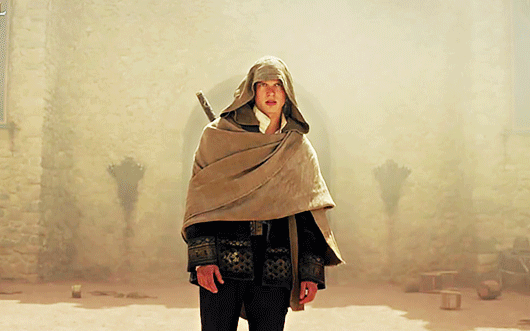
Proclaimed across the sky in fire 🔥🐲
#wheel of time#wot on prime spoilers#wot on prime#wheel of time show spoilers#wheel of time show#wheel of time s2 spoilers#wheel of time spoilers#wheel of time on prime#mat cauthon#rand al’thor#lanfear#ishamael#al’lan mandragoran#lan mandragoran#moiraine#moiraine damodred#aes sedai#perrin aybara#hopper#nynaeve al’meara#elayne trakand#ingtar#uno nomesta#egwene al'vere#moghedien#wot book spoilers#birgitte silverbow#min farshaw
291 notes
·
View notes
Text
According to Genocide Watch, dehumanization and the representation of target groups as animals or insects represents state 4 of the 10 stages of genocide. Staging the racialized human as animal was incremental during the Holocaust, the Rwandan genocide and many others. In the more recent genocide case brought to the ICJ by South Africa against Israel, the framing of Palestinians as animal-like was used as evidence. Furthermore, such Israeli incitements also have historical precedents: As Darryl Li recently wrote, “the UN General Assembly recognized the 1982 Israeli-sponsored massacre of Palestinian refugees in Sabra and Shatila in Lebanon as an act of genocide”, yet little has changed to protect Palestinians. In fact, some might argue, Israel grew more and more emboldened by the inaction of the “international community”, that as Li argues, witnesses a war over semantics that “gesture to a future in which the powerful decide that if they can’t control the use of the word genocide, it shouldn’t be used at all”.
Denying people’s humanity and framing them through animality is often the pretext to materialize the imposition of unspeakable violence, cruelty and degradation through the optics of a security/health necessity and a larger argument about the defense of humanity. It is thus no coincidence, that during Israel’s 2014 war on Gaza, for instance, the then Deputy Speaker of the Knesset, Moshe Feiglin, wrote a letter to Netanyahu in which he discouraged “civilians from staying in Gaza” by cutting off the “electricity and water supply”. He argued for the “conquest of the entire Gaza Strip”, the “annihilation” of Hamas and the “concentration” of civilians into camps marked for deportation to other countries. Finally, he also propsed that “formerly populated areas will be shelled with maximum fire power”. These proposed fantasies of annihilation existed within a larger context where Palestinian life has already repeatedly been called “human animals” or “cockroaches” in 2023, or snakes in 2014, or “drugged cockroaches in a bottle” in 1983.
[...]
According to the theorist of settler colonialism, Patrick Wolfe, by decimating native peoples and their resistance, the ultimate goal of settler frontier violence is to “constitute its principal means of expansion”. In further steps, the transfer, incarceration, replacement and/or elimination of the native population takes place. In this scenario, frontier violence and its racializing semantic taxonomies structure settler colonial societies and the way they operate. Within such verbal power displays, taxonomies classifying the value of sentient life, in this case animals, are produced to signify brutality, violence, but also hypersexuality and beastiality in the racialized Other. While “invasion is a structure and not an event”, the genocidal nature of frontier wars and settler colonial expansion simultaneously separate and collapse into each other in the name of capitalistic reproduction and premature death the minute there are profits to be made from war. Within such settler colonial logics, there has also been a deeply ingrained interplay between figurations of the native, animal and plant life to structure their exploitation, dispossession, elimination and/or replacement. Hence, whether native or racialized life is metaphorized as plant life or as animalistic, both foils function to frame the Other’s personhood as devoid of social, political, or historical human context, and thus also do not need explanation or empathy during states of war and conquest.
67 notes
·
View notes
Text
The whole apparatus of life has become so complex and the processes of production, distribution, and consumption have become so specialized and subdivided, that the individual person loses confidence in his own unaided capacities: he is increasingly subject to commands he does not understand, at the mercy of forces over which he exercises no effective control, moving to a destination he has not chosen. The machine-conditioned individual feels lost and helpless as day by day he metaphorically punches his time-card, takes his place on the assembly line, and at the end draws a pay check that proves worthless for obtaining any of the genuine goods of life.
This lack of close personal involvement in the daily routine brings a general loss of contact with reality: instead of continuous interplay between the inner and the outer world, with constant feedback or readjustment and with stimulus to fresh creativity, only the outer world-and mainly the collectively organized outer world of the power system-exercises authority: even private dreams must be channeled through television, film, and disc, in order to become acceptable.
With this feeling of alienation goes the typical psychological problem of our time, characterized in classic terms by Erik Erikson as the 'Identity Crisis.' In a world of transitory family nurture, transitory human contacts, transitory jobs and places of residence, transitory sexual and family relations, the basic conditions for maintaining continuity and establishing personal equilibrium disappear. The individual suddenly awakens to find himself in a strange, dark room, far from home, threatened by obscure hostile forces, unable to discover where he is or who he is, appalled by the prospect of a meaningless death at the end of a meaningless life.
Lewis Mumford, The Pentagon of Power (The Myth of the Machine) Vol 2
124 notes
·
View notes
Text

Do what thou wilt shall be the whole of the Law.
Nuit and Hadit are two deities in the religion of Thelema, an esoteric philosophy popularized by British occultist Aleister Crowley in the early 20th century. Nuit is a goddess representing the universe, while Hadit is a god representing the center of the universe and all points of space and time. Nuit is described as the “Empress of Space,” evoking limitless openness and possibility. In contrast, Hadit is described as a “lord of limitation,” evoking constriction and containment within a particular point in space and time. Together, Nuit and Hadit symbolize two aspects of the spiritual experience, namely, the divine expansiveness and the individual’s journey of growth and self-awareness within a particular context. Through harmonizing both aspects, the Thelemic philosophy seeks to unify space and time, mind and body, and the earthly and spiritual realms.
The interplay between Nuit and Hadit is said to create the universe. Nuit is the primal power of the universe, the forms of undifferentiated unity and infinite potential while Hadit is the individual force that establishes perspective and brings into existence individual and finite phenomena. By uniting these two principles, Nuit and Hadit create an active interplay that results in a balanced and harmonious universe. This interplay of Nuit and Hadit is often represented as a yin-yang icon. This interplay includes all of the opposing yet complementary forces that exist in the universe, such as beauty and ugliness, good and evil, life and death. This interplay allows for the development of dynamic and creative existence, providing a base from which all manifestation can occur.
The precise details of what constitutes the “Great Work” will depend on each individual’s own spiritual journey and understanding. While there is no one definitive answer, it could be said that Nuit and Hadit, when reunited in consciousness, can bring forth divine wisdom and understanding, enabling the individual to realize the interconnectedness of all things and to live in harmony with the universe. This reunion is not merely a physical process, but a spiritual one. It calls for the understanding of the individual and the understanding of the Universe to unify and become one Understanding .
This can only be achieved after a long process of the individual committing themselves to the process of self-development and inner exploration. This is done through contemplation, meditation, magick, and various other spiritual practices that help to bring forth the truth within. As one moves through the process and develops a true understanding of the universe and their place within it, they can begin to realize the great potential of their own creative power.
We call on Thelemites to unite their divine expansive nature, symbolized by Nuit, and their divine contractive nature, symbolized by Hadit, within themselves and to dedicate their will and life in pursuit of the Great Work. The stellar union of these two powers will bring Light and the full realization of one’s greater nature and purpose. In those moments of divine illumination, one should also give heed to the highest promise of the Great Work — to go out into the world and enjoy life to the utmost. Let us, then, leap out into life and manifest the joy of Thelema in every moment.
Love is the law, love under will.
Nuit & Hadit
@noeasyvision
The elements are Nuit—Space—that is, the total of possibilities of every kind—and Hadit, any point which has experience of these possibilities. (This idea is for literary convenience symbolized by the Egyptian Goddess Nuit, a woman bending over like the Arch of the Night Sky. Hadit is symbolized as a Winged Globe at the heart of Nuit.)
“Introduction” to the Book of the Law
48 notes
·
View notes
Text
Jonelias thought of the day is that Elias must come across as so stuffy and boring to those at the Institute - which, you know, very much helps hide his true nature - but as an avatar of the Eye and a man determined to avoid the End, Elias is someone whose entire being revolves around the interplay of knowledge and experiences. He's compelled to Know it all and his efforts to avoid death invite him to Experience it all too, a fascinating combination of passive observer and, by virtue of being a 200+ year-old in search of true immortality, an active participant too. This is a man whose longevity and thirst for knowledge invites an obsession with life that contradicts the 'Sits in his office doing nothing but spreadsheets all day' image he's learned to cultivate. (Though, to be clear, he does love the spreadsheets.) And I don't just mean "obsession with life" in the sense of him avoiding the finality of death, but actually loving the act of being alive.
I think a lot of what the fandom (rightly) jokes about in regards to his characterization is a reflection of that obsession. Elias has a relationship with Peter Lukas that goes far beyond the cold practicality of an alliance, hinting at a romance (if you steer towards a LonelyEyes reading), or just Elias' desire to still be able to place bets with someone while he's trying to end the world. Similarly, his powers ensure that he's never truly alone - if he dies, he takes the rest of the Archive with him - forever supplying him with a warped companionship that doesn't threaten him like he perceives he was threatened as Jonah Magnus, with his acquaintances working to complete their own rituals. In true Beholding style, he's got the heart of a fucked-up scientist who's endlessly curious about the world around him: 'Oooh what happens if I let my friend waste away in the Lonely?' He shows up at Jon's birthday party not just to secretly gloat and keep an eye on things (ha), but because he legitimately wants cake. Who wouldn't want cake? What's the point of living forever if you can't have cake?? Well, for an avatar the exquisite sweetness of fear is just as good, but my point stands. Beyond his fear of death, that enjoyment is at the heart of Elias' goal, with Jon describing his experience as the Pupil as a kind of agonized bliss and Elias confirming this by saying he was having the most wonderful dream. Morality aside, he likes interacting with the horror of the Entities, something we saw all the way back during the "[PLEASURED EXHALATION]" scene. Learning new things feels good. Experiencing news things is enjoyable. Learning and experiencing Bad Things is especially nice given his patron. Consistently, Elias' setbacks are met with interest, or a mild annoyance that then eventually settles into satisfaction because they are also new experiences for him and the Eye: going to jail, getting to psychologically torture Martin, having his own secrets exposed. There's a lot throughout the series to imply that Elias enjoys watching Jon become the Key, not just because it means he's succeeding in his goals, but because there's genuine interest and pride in seeing him "grow" by Elias' standards. The repetition of "our world," "our patron," etc. implies a connection; the intention to experience this new world with another, to enjoy it rather than simply exist in it for the mere sake of existence. Elias is a man whose entire essence boils down to, "I NEED TO KNOW ALL THE THINGS, EXPERIENCE EVERYTHING, AND LIVE FOREVER WHILE ACHIEVING THAT, TO UNDERSTAND IT ALL SO I CAN CONTROL IT ALL AND HAVE A DAMN GOOD TIME IN THE PROCESS, EVEN WHILE I SUCCUMB TO THE PRIMAL FEAR THAT DRIVES ME I WILL PARADOXICALLY EMBRACE IT, AND YEAH THAT'S LARGELY BECAUSE I SERVE THE LITERAL GOD OF JUDGY SURVEILLANCE BUT ALSO THAT'S JUST ME."
So anyway, I keep thinking about how this characterization could intersect with S1-2 Jon: prickly, awkward, semi-isolated, desperate to be recognized by someone whose authority he believes in. AKA the boss who, at an unprecedented young age, rose to the top of the Institute they both work at, perceived by those around him as far less interesting than he actually is. Parallels, anyone? Imagine Jon getting to really talk to Elias, realizing how much he has to offer after 200 years of life (though of course he doesn't know that), and just constantly being blindsided by not just the knowledge, but the enthusiasm for everything he's learned and been through - the good and the horrifyingly awful that, despite himself, Jon is equally drawn to. Elias recognizes every quote Jon drops into a conversation and has another witty line to pair it with. He doesn't just indulge his nerdy rambles, but participates in them. He's refined in all the ways that Jon expects - books, opera, music, etc. - and also casually drops in references to acid trips and fucking orgies. Imagine an early series Jon who forms a strong bond with Elias outside of the web (ha x2) he's been weaving, becoming dependent on his friendship and just a little bit completely in love. Elias is inherently fascinating, but he's also just Some Guy, and the combination of that is just perfect for a necrotic Archivist who simultaneously wants to be guided by his 'betters' and prove that he's an equal. Why Elias would be interested in turn barely needs stating: Jon is literally Elias' everything, in a horrifyingly tragic and like, Gothic Romance sense? What would that kind of relationship have changed? It would have likely made Elias' job even easier, but what about Jon?
...I'm not saying that Jon's drive to protect humanity would have been warped into something tragically dangerous if he'd first come to see his intelligent, complex, shockingly kind (from his nonexistent self-esteem POV), secretly-an-eldritch-monster boss as the epitome of humanity... but I'm also not saying it couldn't have!
#TMA#The Magnus Archives#Jonelias#this is so rambly I'm sorry#I'm just having a lot of feelings about these two#Jon deserves a corruption arc that he's convinced himself is a hero's journey#as a treat#also I keep thinking about Elias' refusal to define a human#and the Witcher line about Regis - a vampire - being the best of humanity#can a monster be human?#sure why not#especially when so many humans are already monstrous#I just want Jon to rule under a horrifically misguided idea of which humans are worth protecting#his wonderful desire to protect molded into not just the key that will end the world#but the thing that perpetuates its torment#as! a! treat!
258 notes
·
View notes
Text
Skein of Destiny
Now that I've got your attention with a shitpost I do want to plug the article I worked on that prompted it, and throw out some thoughts that are too speculative for wiki articles!
What we know (ie, the canon stuff; much of this is also in the article with citations)
The skein is a physical manifestation of the concept of fate, with threads representing the fate of individuals - Vax and Caleb have both seen it in two entirely different contexts, and Evontra'vir's roots grow into it.
The idea of destiny and fate as a skein/tapestry/weave is nigh-universal in Exandria. It is consistent among worshipers of the Prime Deities (Raven Queen and Ioun both reference it; The Raven Queen's domain includes fate), the Luxon (Caleb sees the skein within the beacon), and nature (Evontra'vir was a druid of the Gau Drashari). Nana Morri, a hag in the feywild, acknowledges it is the Raven Queen's domain, though she has the ability to see it and influence threads beyond her own from an external perspective; Teven Klask (worshiper of a Betrayer God) identifies Fearne as being "outside the knotted weave." Arcane, divine of pretty much all known forms, fey, fiend, and elemental are all united in this understanding in a way they are not really about anything else.
Destiny and fate as understood in Exandria do not mean "all is pre-determined" (as indicated in the shitpost, this is about the interplay of fate and free will, which have always coexisted). The above entities are also united in this understanding. The Raven Queen notes that Vax, as Fate-Touched, influences the fates of those around him in unique ways not merely limited to his choices, but does grant him many choices herself, and tells Percy when he asks her for answers that "There are a great many deeds ahead of you. It's your choice to take them." Ioun says something similar to Vox Machina, and a core tenet of the Changebringer is "Luck favors the bold. Your fate is your own to grasp." The Luxon and Dunamancy are based on the concept of possibility, of many potential paths taken and not taken, and not only do chronurgy wizard spells and the fate-touched ability share certain mechanics, but also permit a do-over, since the future is not yet known. When Caleb observes the threads he sees multiple branches off of them that are implied to be based on possibility (ie, there is not merely one option). And Evontra'vir in episode 3x74 directly tells Bells Hells that while some things are fated to happen, it will be their choice that determines what happens to the gods; it also tells Ashton they are fated to retrieve the spark, but also to bestow it, a choice that is their own.
All three of the main powers discussed (Raven Queen, Luxon, Evontra'vir) also serve to preserve the cycle of life, death, or rebirth in some capacity.
Some thoughts: Honestly the big one is that while the idea of fate vs. free will or of the future being a series of possibilities rather than one definite path is a very common one in epic fantasy (frankly, the idea of Fate as "everything is predetermined" is a bad one anyway in fiction because then there's no point in telling the story), there is a particular ludonarrative harmony to play with this theme in a TTRPG. There is a general path laid out before you, but it is not ironclad, and you can make choices to attempt to change this. Sometimes you will fail despite your best efforts based on factors beyond your control but sometimes you will experience unlikely success. The narrative is shaped by this interplay of possibility/probability and choice.
Some wild speculation: I think a peaceful parting with the gods (ie, stopping Predathos and then Bells Hells making their choices about the fate of Exandria as stated by Evontra'vir) would still preserve this skein fate (as would of course maintaining the divine status quo), but a failure to stop Predathos will destroy it, and the fabric of the cosmos (the roots of Predathos are between worlds; fate connects all of the inner planes). I desperately need to know why Fearne is said to exist outside of fate, because I don't know if that's a fey thing, a Ruidusborn thing, a Nana Morri thing, or something else entirely. I would be shocked if the Luxon doesn't come up in SOME capacity later in the campaign (or perhaps in the Echoes of the Solstice one-shot coming up), and I'm very interested in seeing what other party members might gain as they gather their allies and resources. And I don't think it's coincidence that the two deities devoured by Predathos pre-Schism included Vordo the Fateshaper (nor Ethedok, the Endless Shadow, whose domain of darkness and winter is thematically associated with the cycle of life and death).
#the hilarity of me going full string conspiracy board about a skein has not been lost. join me will you?#critical role#i have still more thoughts about the party makeup and how they fit into this but i wanted to quit while ahead#critical role spoilers#long post
131 notes
·
View notes
Text
YouTube links: Tchaikovsky 6, Dvořák 9
Comments:
Dvořák 9
I know it's gonna get nominated a hundred times, but I have listened to it four times in a row in the past week so I gotta mention it. Exquisite bliss from first to last note.
it slays <3
When I heard the first movement for the first time, I was GRINNING LIKE AN IDIOT because of how much I loved it. LIKE THIS IS SO YUMMY (link opens to the timestamp)
it's got everything. the interplay between minor and major. themes from the early movements that come back in the finale. the most iconic english horn solo in all of classical music. dvorak wrote it while traveling across the US and was directly inspired not only by his native czech/bohemian soundscapes but the musical languages he heard from black and native americans. there's a tuba part but it only plays for like five measures. fantastic orchestrations, making full use of all the different colors of the orchestra. the start of the finale sounds kinda like jaws. it is physically impossible for me to feel upset while i'm listening to it it's the first symphony i ever played in orchestra and i'm so normal about it that i want to get that EH solo tattooed on my art and also i wrote a paper about it for a university music history class and i got an A on it so it should definitely win the bracket or i'll cry
Tchaikovsky 6
Everyone bangs on about the 4th movement but it's the 3rd movement that really hits
tchaik 6 is what i would listen to if i had an hour to live
the 5/4 movement of the tchaik lives rent free in my mind and i think about it every day
It’s beyond gorgeous. The melodies soar, the orchestra swells, and you just need to lie down for a while after listening to it. It’s Romanticism at its zenith. You want to weep and sigh, and it’s impossible to listen to it without literally feeling something.
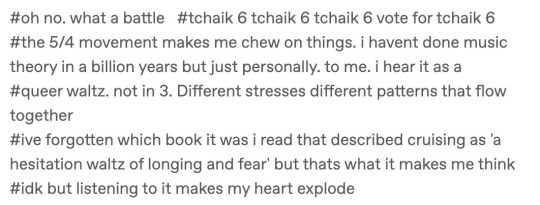
Symphony No. 6, titled “Pathétique”, was Tchaikovsky’s final symphony. It is an intensely emotional piece, and to many scholars demonstrates the emotional turmoil that characterized much of Tchaikovsky’s life. He died about a week after its premiere, a fact which leads many scholars to debate about whether the content of the piece itself reflects the possibility that he may have committed suicide. The title itself is often translated to mean “impassioned suffering”, although this was most likely a later addition by Modest and not actually part of Tchaikovsky’s vision. Given these facts, many scholars interpret this piece to be about death and suffering. However, this piece can also be seen to represent life and all its contrasting moments. This interpretation is more holistic and inclusive of all of the moments captured in this piece, and also serves to break down the common narrative of Tchaikovsky as a tragic figure.
More comments about Tchaikovsky 6 below the cut (length warning):
Scholarship surrounding Tchaikovsky’s music tends to focus heavily on the ways his confliction over his homoerotic desires appears in his writing. However, his personal letters reveal a much more balanced understanding of himself that goes beyond the common narrative. In one letter written to Modest describing a new relationship with another man, he writes: “I awoke today with a feeling of unknown happiness and with a complete absence of that emotional sobriety that used to make me repent in the morning for having gone too far the day before.” Many of the letters he wrote regarding his relationships demonstrate no shame and no anguish beyond what can be expected of a man living in a homophobic society. It is important to take this information into account when listening to a piece such as this one that has been discussed so frequently, and to understand it beyond the turmoil and strife that it is seen to represent. Like many of Tchaikovsky’s works, this symphony displays a range of human emotions. It is not only representative of tragedy and “impassioned suffering”; it is a depiction of what it is like to live. It is also interesting to note that this piece is used as a signifier of queer desire in the novel "Maurice" by E.M. Forster, a novel also notable for its radical portrayal of a queer man who gets a happy ending. Much to think about there.
The first movement begins with a lone bassoon soloist playing a plaintive minor melody, which later comes back in the strings. As the movement progresses, it grows in intensity and texture. More instruments are added, and the music becomes more frantic, building and building towards the dramatic trumpet fanfare. Throughout this piece, Tchaikovsky continues to make significant use of contrasting dynamics and melodies, reflecting the emotions he hopes to convey through the music. Dramatic, tumultuous sections are interspersed with pastoral woodwind melodies, and the angry brass fanfares give way to a quiet ending.
The second movement is reminiscent of a waltz, and uses the strings and woodwinds more than the brass to achieve its floating melodies. The dynamics ebb and flow to build tension, but this movement never reaches the same levels of anguish that the previous movement does. Tchaikovsky makes use of pizzicato in the strings to convey a lighter, more cheerful mood, and features the upper woodwinds prominently. He also repeats themes frequently, giving the audience something familiar to listen out for as the movement progresses.
The third movement begins with frantic energy in the strings and woodwinds. As more instruments join the rush of music, the underlying eight note accompaniment does not let up, continuing the vivacious beginning through the whole movement. Instruments pass the melodies between each other and engage in conversations across the orchestra. Like the first movement, the brass play a prominent role in creating dramatic climaxes in the music, as well as supporting the march-like conclusion. Conductor Myung-Whun Chung describes the deceptively dramatic ending as, “one of the greatest, most thrilling, but most empty of victories in musical history,” observing that this movement has the energetic finality of a final movement. The reversal of having the true finale be a slower movement represents a shift away from the “Beethovian model of light over darkness” common in most other symphonies of this time period.
As mentioned before, ending on a movement with a slow tempo was a significant shift away from the standard of the time. This innovation inspired many other future composers to use the same technique, most notably Mahler in his Ninth Symphony. The quiet beginning builds up towards a chaotic rush of fast runs throughout the orchestra, only to stop abruptly and continue in halting, cautious bursts of melody. The movement continues with this cycle of rushing up to a climax and backing away as the movement progresses. Tchaikovsky highlights the horns in this movement, giving them both angry, blaring notes which cut through the string melodies and the flowing, lyrical lines that are passed throughout the orchestra. As the piece ends, the instruments fall away until all that is left are steady repeated notes in the basses, bringing this lament of a movement to an understated close.
75 notes
·
View notes
Text
Pro-Jedi Essay On the Life and Fate of Shmi Skywalker (long post)
Many who believe that the Jedi Order had lost their way, are pointing at the life and death of Shmi Skywalker. However, their arguments are based on unexamined assumptions regarding the role and ways how the Jedi Order operates, the political and legal reality of the Galactic Republic, or founded on morals different from those depicted and advocated by George Lucas.
This is a long essay, possibly the longest I ever wrote, since each and any discussion regarding Shmi Skywalker and the Jedi Order, is the interplay of five distinct topics, con-joined and informing each other. These are:
The Paradigms of Love: Hierarchical vs. Horizontal
The Fall of the Galactic Republic: Fallen Symbiosis
Horizontal love, Anakin Skywalker and the Jedi Way
The Dark Side of "they could've free at least Shmi!
The Life and Fate of Shmi Skywalker - the Problem with "Deserving"
The Paradigms of Love: Hierarchical vs. Horizontal
One of the core lessons throughout George Lucas Star Wars, is that we need to clear ourselves from the attitude of discrimination toward others, based on feelings of distance and closeness, and that love manifests in two ways, along the same lines. On the one hand, there is love for those who’re immediately around you – your spouse, your parents, your children, your friends, and you do everything you can to protect the people that you love, against all those others outside that very tightly drawn circle. It’s driven by attachment: whether a person is within or without that circle, is determined by whether or not you find them enjoyable, agreeable, pleasant and satisfying, or whether or not they share your beliefs and opinions. We have the idea, deeply embedded into our minds, that the willingness to put people within that circle, our “personal relationships” first, and all the others who we have a bad, or no relationship whatsoever, second, is the measure of love, loyalty, commitment, affection and care.

On the other hand, there is unconditional love, that is compassion: wanting another person to be happy and free from suffering. By definition, compassion means to feel with, to suffer with and to experience with another - it's the sense of profound oneness, innate connectedness, a sense of being parts of each other, when we feel another person's suffering or happiness as our own. Just like when we hurt our finger, we don't think, "Oh, my finger is hurt, maybe I should help it", but rather, there is an instant and intuitive, natural response to it, our quest to be happy and not to suffer is inseparable from and complemented by the same quest of our loved ones. Unlike attachment, compassion can extend beyond the individuals who we're close with or make us feel good; based on the realization that all living things want to be happy and doesn't want to suffer, just as intensely as we and our loved ones are, it can encompass all living beings wanting to be happy and free from suffering - in fact, not even one living thing can be excluded from the circle of compassion. And therefore, if compassion is genuine, it's no longer possible to make hierarchy between the well-being of the people who're close to us and of those with whom we have adverse or no relationship at all.
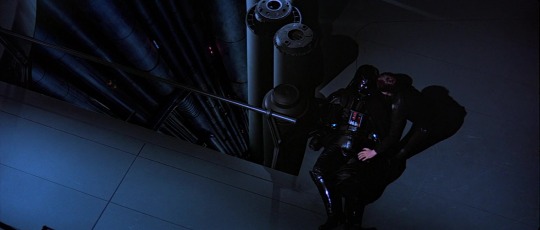
It's essential to understand that genuine compassion is to abandon such hierarchical thinking, not the reversal of the hierarchy, that is to discriminate toward the people we have close, compassionate, loving and trusting and personal relationships for the sake of the people we have adverse or no relationship at all. Nor does genuine compassion allow for lowering the love, care and commitment we have for those close to us, or to forego such relationships, that is trying to avoid discriminating based on feelings of distance and closeness, by not getting close to anyone. In many ways, that's more unwholesome. Genuine compassion is horizontal: the realization that all living things want to be happy and doesn't want to suffer, just as intensely as we and our loved ones are, allows compassion, the wish for others to be happy and not to suffer, to spread effortlessly, evenly, inexhaustibly. Indifference is to say, "I care no more for my mother than I care for a stranger", compassion is to say, "I care for this stranger no less than I care for my mother." In Buddhism, indifference is the "near enemy" of non-attachment: it's mimicking it, but it pushes us into suffering.
The Fall of the Galactic Republic: Fallen Symbiosis
The Balance of the Force
George Lucas' Star Wars story is essentially about the loss and restoration of the balance of the Force. Although there are many interpretations on this concept, Lucas himself was very clear on that balance of the Force means keeping our selfishness under the check of our selflessness and avoid falling to the dark side, which is greed and self-centeredness, and being compassionate instead, which is loving each other unconditionally and caring for each other. It's dual: when you find balance, you're a compassionate individual, you control your selfish side, and you can do a lot of good things; and when you have a group made up of compassionate individuals who control their greed, you can have a symbiotic circle, which is the balance of the two sides of the Force at large, of the galaxy itself, that is selfishness being under the control of selflessness, and people come together to be as one, cooperating.

The central conflict of George Lucas’ Star Wars story is the loss of balance and the fall of a symbiotic relationship. The Galactic Republic is the galaxy forming a symbiosis, following the horizontal paradigm, existing in balance; the loss of balance is the shift from the horizontal love paradigm to the hierarchical one. "The Republic is not what it once was. The senate is full of greedy, squabbling delegates. There is no interest in the common good" and it "no longer functions" as it was said it Episode I, and as Lucas tells us, it's because "the Senators have fallen out of the symbiotic circle” and “they couldn’t agree on anything because their interests became so divergent, so they couldn’t get anything done as a Republic.” It's crucial to understand that although it's very popular to declare that the problem was the Senate, therefore, the Jedi Order was supposed to stop serving it, the issue depicted in Lucas' Star Wars is far worse and roots deeper than that. As corrupt and dysfunctional the Senate become, it was made up of senators who were elected directly or indirectly by the people of the member worlds. And as Ahsoka teaches the youth of Mandalore in Clone Wars, "citizens must be vigilant so corruption can't take root" and "it's every citizen's duty to challenge their leaders, to keep them honest and hold them accountable if they're not. Lasting change can only come from within." The horizontal love paradigm was declining in the entire galaxy, with individuals no longer operating as a group, no longer running their democracies, slowly drifting towards the hierarchical paradigm, which eventually erupted in the Separatist movement and the Clone Wars, resulting in the galaxy's fall to the dark side: the Galactic Empire. As Lucas summarizes the fate of the Republic: "well, the people gave it away." One of the core reasons why the "Jedi lost their way" theory gained a foothold is because the people are very much troubled by this notion, since it reveals that they have all the responsibility for maintaining democracies.
Understanding the Hutts and Hutt Space

The existence of slavery at the Outer Rim is the result of the gradual decline of the Galactic Republic. Tatooine is an out of the way, small, poor, sparsely populated planet on the outer rim of the galaxy, the home of the Jawas, the Sand People, scavengers and moisture farmers, controlled by the Hutt families who are vile galactic gangsters. It's part of the galactic underworld, where the anti-slavery laws of Republic, that are, as Padmé says, outlawing slavery in the entire galaxy, are not respected. As Shmi states, "The Republic doesn't exist out here. We must survive on our own." On Tatooine, the Republic's currency has no value, as people want "something more real", like ships, pods or slaves or "wupiupi" which is most likely made of something that has value on its own. Being the den of a powerful crime lord, the planet's spaceports, where slavery thrives, are "havens for those that don't wish to be found" and a "wretched hive of scum and villainy" - it's no surprise that in the cities grown around them, holding others hostage for economic gains or pleasure, which is against the laws established by the Galactic Republic as well, is part of everyday life. Hutt-controlled Tatooine is not a "slave state" as opposed to the "free states" of the Galactic Republic, like in the pre-1865 USA, nor it's an entity that shares borders with the Republic. In truth, Hutt Space, and everything within its borders can be paralleled only to those areas of Sudan, Liberia, Sierra Leone, Uganda, Congo, Niger and Mauritania, where the government has no effective control, and slavery is still alive and well in 2023. Although Jabba and the others are usually addressed respectfully, they're universally regarded as "criminals" or "vile gangsters." When Palpatine says, they must reach an agreement with Jabba, Mace Windu replies: "I don't like this, dealing with that criminal scum. This is a dark day for the Republic."
The Jedi Order: Guardians of the Waining Light
The Jedi Order was well aware of that the Force is out of balance. As Lucas says, "[Dooku] carries the sympathies of most of the Jedi, which is that the senate is corrupt and it's incapable of carrying on any meaningful action, because they argue about everything all the time" however, restoring lost balance cannot be done through force, only through bringing compassion and sanity back to the Senate and the galaxy. Many who believe, the Jedi Order had lost its way, argue, the Jedi Knights failed as guardians of peace and justice, neglected their duties and turned their backs on the most vulnerable - however, such allegations are founded on the idea that they were supposed to be the ones in the universe who erase injustice, conflict, and wrongdoing. It's very important to remember that the Jedi Knights, as they state it repeatedly throughout the Saga, are "keepers of peace, not soldiers" and "not warriors." Even though the Jedi Knights were inarguably very good warriors, in Episode II, it was illustrated powerfully that they cannot win on the battlefield. "A lot of people say, 'What good is a lightsaber against a tank?' The Jedi weren’t meant to fight wars. That’s the big issue in the prequels" Lucas reminds us. "If they do have to use violence, they will, but they are diplomats at the highest level" and "they don't kill people. They don't fight," and they "weren't mean to fight wars." If they Jedi would've decide to wage a war on the Hutts, the war would've siphon off Jedi Knights, neglecting the rest of the galaxy and they’d have lost, most of them killed, making things even worse.

The essential difference between a Jedi Knight and a superhero is that superheroes are fundamentally god-like individuals who fight our battles for us: they topple dictators, stop corrupt politicians and greedy companies, they fend off armies, stop us from destroying ourselves. A Jedi Knight cannot and won't do that. As George Lucas says, "[the Jedi Knights] were never designed to be a superhero or anything like that. They were designed to be a Buddhist monk, who happened to be a very good warrior." Whenever they're do involved in battles, they do so in order to protect key figures who're able to unite their people against the forces of greed and destruction, like Padmé Amidala, both Queen and Senator, and Duchess Satine. They worked closely with the Chancellor of the Republic, especially with Palpatine, who promised to fight off corruption in the Senate and lead the galaxy toward a better future. They are “monk-warriors” who are “monks first, and they try to convince people to get along.” They’re “ultimate father figures” and “intergalactic therapists” and “warrior-monks who keep peace in the universe without resorting to violence.” They are heavily reliant on compassionate, democratic, thus strong galactic community, the ever-growing symbiotic circle, to guard peace and justice: the Jedi Order needed the Republic, and later, the Rebellion, to succeed. And they had reassurance that the lost balance will be restored: it was prophesied that the Chosen One will come and bring balance to the Force.
Horizontal Love, Anakin Skywalker and the Jedi Way
Widely popularized ideas are that the reason why Anakin is not going back to Tatooine to free Shmi, is because he was forbidden by the Jedi Council to do so; he expected something fundamentally different regarding the Jedi teachings, or their way of life, their limitations or the way how they operate - however, these ideas are not just lacking any rational basis in the actual story, but also wildly contradictory to Anakin's portrayal. In truth, all these assumptions are stemming from fans conflating their own expectations and perceptions regarding the Jedi Order with how Anakin and other characters are actually viewing them, and/or the desire to see the hierarchical love paradigm being affirmed by Star Wars.
"I had a dream I was a Jedi. I came back here and freed all the slaves"
In Episode I, Anakin Skywalker is a very compassionate, very selfless and very good kid, who gives without a thought of reward and know nothing of greed, who dreams of becoming a Jedi Knight, and he is very clearly thinking along the lines of the horizontal model of love. He tells Qui-Gon, "I had a dream I was a Jedi. I came back here and freed all the slaves. Have you come to free us?" which clearly shows that he considers himself as part of a team, encompassing all the slaves in Tatooine, and in his mind, a Jedi Knight is not only freeing his mother and friends, the people he's close with, but everyone. When he is about to leave with Qui-Gon to actually become a Jedi Knight, he vows, “I will come back and free you, mom” and we know that he plans to achieve this by making his dream come true.
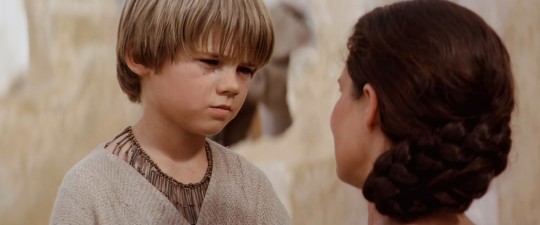
Anakin's situation is the same as Padmé's in Episode I: while Naboo is invaded and its people are tortured, Padmé does not establish a hierarchy between the well-being of her loved ones and the well-being of the rest of the Naboo, but decides to go with Qui-Gon to Coruscant to ask the help of the Senate, which was supposed to be the quickest, easiest and most effective way of freeing her planet. Anakin leaves with Qui-Gon for the Jedi Temple at the heart of the Republic, to become a Jedi Knight, to become the hero who will return and bring freedom to his mother and all of the slaves.
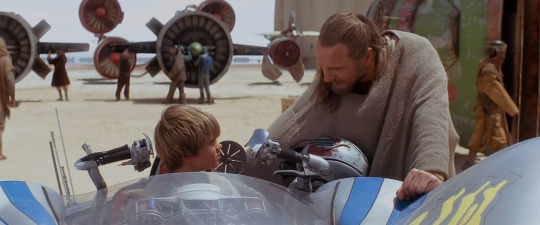
It's to be noted that even though a portion of the Star Wars fandom criticizes the Jedi Knights for not ending slavery on Tatooine or not trying to free at least Shmi, accusing them with indifference or failure to do their duty to guard peace of justice, Anakin Skywalker himself doesn't hold these opinions. He knows that a Jedi Knight brings peace and justice, and his expectations that as one of them, he will free his mother and all the slaves, is realistic: the anti-slavery laws of the Republic are outlawing slavery in the entire galaxy, and in the past, with a functioning Republic, the Jedi Order dismantled the slave empire of Zygerria, enforcing the laws, guarding peace and justice. It's very important to notice, that even though he believes, "no one can kill a Jedi", it never once occurs to him to cast stones on Qui-Gon or the Jedi Order for the conditions on Tatooine - he's offering his help so they can leave the planet and continue their journey to Coruscant as soon as possible. Never once suggests that they should go to battle against the slavers, or use violence against them, not even when he realizes that Shmi must stay on Tatooine. All this clearly shows, he understands and adheres to the Jedi way. Even more so, the only thing that Anakin is shown to be wrong about the Jedi Knights was his belief, "no one can kill a Jedi" - never once he gives any reason for us to believe that he expected something fundamentally different regarding the Jedi teachings, or their way of life, their limitations or the way how they operate. It should be noted that it's not the Jedi Order, but the Republic, what he becomes more and more frustrated with: in Episode II, he admits, "I don't think the system works," believing, if the people can't agree on what's the best for the most people, "Well, then they should be made to."
Anakin's Decision and the Circumstances on Tatooine
Part of the problem is that slavery is a very emotionally charged issue to discuss and for some, this may result in a quite misguided assumption: the fact, Anakin and Shmi were enslaved, means, the mistreatment of the slaves of ancient times, the torture and brutal dehumanization of enslaved black people in the southern U.S. as well as the suffering of victims of modern day slavery, are all integral part of their lives on Tatooine. Oftentimes, it's founded on the belief that their enslavement indicates, signifies, represents slavery in general, thus, it must be viewed, imagined, discussed through the historical, cultural, political and social parameters in which the Atlantic slave trade, how it relates to the U.S. and the West as a whole, is central. However, such approach is highly problematic: the type of slavery they were subjected to, lacked, and therefore wasn't the offshoot of the dehumanizing brutality of racism. In George Lucas' Star Wars story, slaveholders were shown to recognize differences between species, but they collapsed those differences to the consideration: “the weak deserve nothing more than to kneel before the strong, bound to our service.” This type of slavery obviously can, and often will result in brutal, inhuman treatment, but it's crucially important to acknowledge that just like Ancient Greek, Roman and Egyptian slavery was very different from the type of slavery in the southern U.S., slavery in Star Wars also has different political, cultural and social aspects and it must be examined and discussed accordingly.
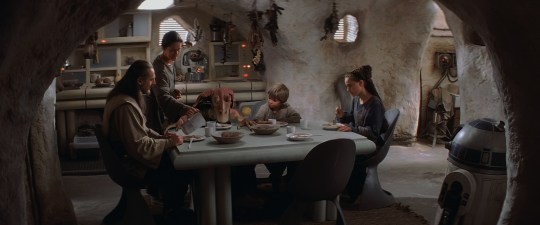
In Episode I, the Skywalkers were shown to lead a life similar to a serf - they lived independently from their slaver, owned personal property and money, were able to negotiate transactions, had considerable freedom in their daily lives. Anakin was shown to feel safe to talk back to Watto, to declare, he won't let himself being defined by his status as a slave, to speak his mind and to confront Sebulba, or to discuss his plan to locate his transmitter and escape, with strangers, and it was shown that a slave is expensive enough that the prospect of having to pay for it, stopped someone as aggressive and hateful as Sebulba from harming Anakin. Although Watto didn't seem to be bothered by promising Anakin to Qui-Gon, which could indicate that it was accepted to split families, it's worth to consider that Watto believed his win to be a fact, thus Anakin will remain his slave, and that he knew that Qui-Gon is from somewhere where the Republic enforces its laws, which explains, why he's not surprised at all when Qui-Gon says, since he won the bet, Watto must release Anakin, rather than transferring ownership.
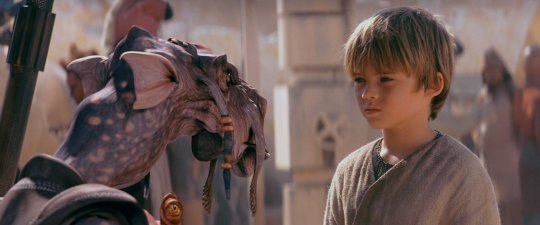
It would be important to note that when he left Tatooine, the cause of Anakin's distress was that he will be on his own and without his mum, missing her, and he become afraid of losing his mother; one must realize that's different from and not the same as being afraid for her life and being worried for her wellbeing. In Episode II, he states, he doesn't understand, why he would have nightmares about her, and when he realizes that he's having premonitions, and returns to Tatooine, his behavior toward Watto is quite friendly, rather than jumping to the conclusion that it must be his former slaver, who harmed Shmi. In fact, George Lucas indicated, Anakin and Watto's reunion in Episode II is analogous to visiting old high school teachers as young adults. What this tells us is that the slaves of those who could very easily afford new ones - such as Zygerrian nobility and Jabba the Hutt - lived a particularly brutal existence, however, most of the enslaved were able to lead a hard, but relatively normal and relatively safe life. Thus, even though Shmi wasn't left in the best circumstances, those circumstances allowed Anakin to leave with the certainty that he will be able to save her.
The Dark Side of "they could've free at least Shmi!"
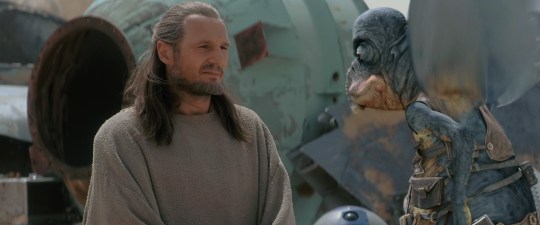
Those people who attach special importance and urgency to Shmi's freedom and insist, Qui-Gon and the Jedi Order was obligated to at least free her, are do so because they like her and they believe she deserves it, or for some, it's Anakin whom they like and therefore they don't want him to be sad without his mum. It's generally unsaid and not even conscious, this type of reasoning postulates that you can and actually, you should arrange people's right to be free into a hierarchy, with those who meet with your standards of goodness who you're close to, or who would make someone you like happy, are enjoying priority over those who you think aren't nice or have no relationship with. Helping those slaves, as this logic goes, is less urgent, they can and they should endure slavery for a bit longer, until the most or more deserving ones are freed. It shouldn't be hard to see, how this way of thinking is actually the flip-side of the way of thinking that condones the institution of slavery, nothing more, nothing less. We have a strong tendency to prioritize the wellbeing of the people who are close to us, who make us feel good, to consider the suffering of people who made us feel bad as well-deserved, to be less concerned, indifferent toward those who we have no relationship at all. But, this tendency is a flaw and it would be important to notice, this is not what Anakin and Shmi would want.
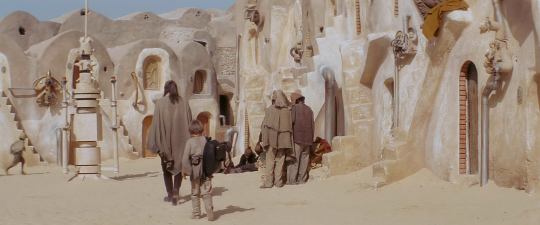
George Lucas’ Star Wars story doesn’t tell us that a non-violent method is the only possible response to injustice and wrongdoing, however, it’s important to point out that this doesn’t mean that it’s ever right to intentionally harm another - but in order to achieve greater benefit for a greater number of people, or when there is no other way to save the defenseless against the aggressor, or it’s an either you or them situation, you can certainly use a violent method. If we examine the situation, killing Watto doesn’t meet with these requirements - it has to do more with the desire to inflict harm upon him or the urge to hit out of those who’re outside of the circle of our personal relationships. Threatening Watto with a lightsaber wouldn’t be as harsh as killing him, but there is no way of preventing him from crying for help - unless killing him - and that would lead to even more killing, not to mention that chances to leave the spaceport would shrink greatly. Therefore, these aren't wholesome responses, and it should be clear why Shmi and Anakin, although he believes, "no one can kill a Jedi," never once suggests that Qui-Gon should go to battle against the slavers, or use violence against them, not even when he realizes that Shmi must stay on Tatooine as Watto's slave, he does not cast stones on him or the Jedi Order for not going to Tatooine to save her. He clearly adheres to these principles in Episode II when he sneaks into the Tusken camp, rather than massacring his way to his mother, but when she dies, out of anger and hate, he wipes them out to avenge her, and in the Clone Wars, he slowly, but steadily becomes more and more willing to kill his opponents, even when he has other options.
A note on Qui-Gon Jinn
Sometimes, Qui-Gon Jinn is accused with being indifferent and ungrateful for not freeing Shmi Skywalker, but, once all unexamined assumptions about the Jedi Order are cleared away, once the dark side of the "they could've save at least Shmi!" is acknowledged, we must realize, Qui-Gon takes Anakin to the Jedi Temple, because he realized, he discovered the promised Chosen One - making him a Jedi Knight, a guardian of peace and justice, giving him the proper training and upbringing to fulfill his destiny, would restore balance to the Force: selfishness under the control of selflessness, people are together as one, cooperating, the Republic functioning enforcing its laws and principles, ending slavery, as it did in the past.

When Shmi asks him, whether he is able to help Anakin to escape slavery, Qui-Gon replies, "I don't know. I didn't actually come here to free slaves." It become popular to assert, this somehow must mean that Qui-Gon is not interested in or he is not intending to free slaves, however, simply no compelling rational basis exists for this assertion. Qui-Gon Jinn is not on Tatooine to free slaves, he was forced to land on the planet ruled by a crime lord, in the middle of a mission to escort a queen who must save millions, to the capital, and he is in desperate need of help. The reason slavery exists in the galaxy is because the Republic no longer functions and fails to enforce its anti-slavery laws. Misinterpreting and misrepresenting these facts is grounded on ingrained mistaken assumptions. In addition, there are those in whom the words, "I didn't actually come here to free slaves" are triggering an emotion that, overthrowing reason, demands them to react with "if he is not on Tatooine to free slaves, he doesn't want to tear down the system!" Which, of course, lacks any sane basis.
The Life and Fate of Shmi Skywalker - the Problem with "Deserving"
It was Shmi Skywalker who taught her son, "the biggest problem in this universe is nobody helps each other." She, just like Anakin, gave without the thought of reward and was full of compassion: despite she was a slave on a world made of dust, Shmi had unwavering commitment to, and raised her son in the spirit of the horizontal love paradigm, was willing to offer refuge to strangers in her home and sharing her meal with them, and was willing to let her son go, so he can become a guardian of peace and justice in the entire galaxy.

Shmi Skywalker, just like her son, had no misconceptions about the Jedi Order and the galaxy: she didn't accuse Qui-Gon or the Jedi in general with failing their duties or being indifferent toward them, and even though she was well aware that the failing Republic abandoned her, she took no pleasure in the misery in the misfortune of Padmé and the others, but was willing to help and letting Anakin to help them. After Anakin left Tatooine to begin his Jedi training, Shmi was freed from salvery by Cliegg Lars, a moisture farmer who later married her. One day, when she was out in the morning gathering mushrooms, she was abducted by Tusken raiders, and she was subjected to brutal torture. Anakin returned to Tatooine to save her, but when they reunited, Shmi succumbed to her wounds and died in his arms. She didn’t ask her son to avenge her, she wasn’t bitter, hateful, angry, fearful. She was happy: “Now I’m complete” and she had nothing to say but, “I love you.” In Clone Wars, Anakin, referring to him wiping out the Tusken village out of revenge, claims "I failed as a Jedi, and I failed you" - implying that Shmi, taught him the same morals and ethics as the Jedi Order.
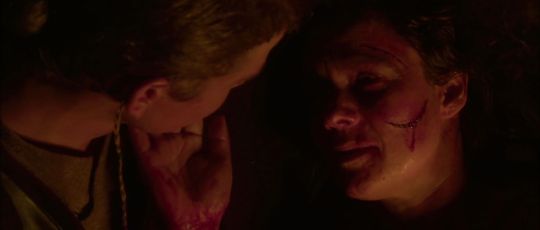
We tend to believe that the world is under the direction of a cosmic moral judge, rewarding good people and punishing bad people - for this, the fate of Shmi Skywalker is often deemed undeserved. From such notions, follows the idea that Qui-Gon Jinn or the Jedi Order was supposed to make sure that justice will be served for her, and what happened to her must be the result of that those, who were supposed to be agents of that cosmic judge, were failed to do their duties. However, the harsh truth is that, the probability of Shmi being abducted by Tusken raiders on Tatooine was the same as the probability of being murdered on any other planet, say, Coruscant. George Lucas' Star Wars presents a cosmos that is devoid of a cosmic system of reward and punishment, and attempts to blame her death on the Jedi Order is quite desperate. The life and death of Shmi Skywalker illustrates the lesson, life will do its own thing, it's not working as a mechanism by which the universe will bring good to good people, bad to bad people. We're interconnected, our lives are interwoven into each other, what happens to us is the product of the actions of others as well as our own, and determined by the degree of balance between selfishness and selflessness without ourselves as well as within others. The greed of Nute Gunray led to the invasion of Naboo and the death of Qui-Gon Jinn, but also led Qui-Gon to Tatooine, where he found Anakin. Shmi let her son go, and her action resulted in the liberation of Naboo, but a decade later, also the formation of the Empire, the destruction of Alderaan, and eventually the death of the Sith and the restoration of balance. Shmi being freed by Lars led to her death in a Tusken camp, Lars marrying Shmi led to his son dying by the hands of imperial storm troopers. All of existence is a vast nexus of causes and conditions, constantly changing, in which everything is interconnected to everything else. Shmi Skywalker illustrates, happiness is not in a reward-punishment system that distributes good and bad among living things based on whether or not they were good or bad. Tapping into her compassion, she was able to accept the reality of the ebb and flow of pleasure and pain of being alive, and was able to find an inexhaustible source of contentment, peace and joy, strength, determination and hope.
Sources:
Star Wars Archives 1999-2005
Star Wars: The Phantom Menace “Prime of the Jedi” featurette
George Lucas’ foreword for Shatterpoint by Matthew Stower
Interviews with George Lucas 1 2 3 4 5
George Lucas' audio commentary for his Saga
Star Wars Saga and Star Wars: The Clone Wars
Please note: I used no Disney or Legends Star Wars materials, (save for the one Shatterpoint foreword) - but I accept that others may found their own reading on them, thus, might come to different conclusions than I do.
#shmi skywalker#anakin and shmi#star wars#very long post#pro jedi order#jedi morals#compassion#attachment#qui gon jinn#slavery#tw slavery
279 notes
·
View notes
Text
I cannot stress enough how much everyone should watch Starkid’s A VHS Christmas Carol if you haven’t seen it yet. It’s pretty short, only about 45 minutes, and it’s truly one of the best adaptations of A Christmas Carol that I’ve ever seen.
No, seriously. I think it has even surpassed The Muppets Christmas Carol for me. That has been my favorite Christmas movie since I was a child. My mom and sister and I used to watch it every Christmas Eve. I still love it dearly and it is an amazing adaptation that I’ll defend to my death, but you guys. You guys. A VHS Christmas Carol is just THAT GOOD.
It’s done in the style of 80s music/videos, which is delightful. It’s an opera, so it’s all sung through, which I love. And it’s so good!
Let me enumerate the ways. Spoilers to follow. (Can you spoil A Christmas Carol? Once a story becomes public domain does that exempt it from spoiling? Idk, lol. Spoilers for the show, anyway. Also for Avatar: The Last Airbender. …I promise there’s a path.)
1) Bah Humbug! - Song number one and it goes hard right from the start. It is everything an opening number should be. Dynamic, sets the tone, and an incredible fucking bop. The interactions between Scrooge and Fred and Scrooge and Bob are done so well, too. You so quickly get a sense of their characters. Obviously we know their characters because this is a story that has been told many a time before, but it does it so well that you would immediately get them even if you were an alien who had never in your existence been exposed to A Christmas Carol in any capacity. That’s impressive to me. It’s not relying on the familiarity of the story to do its character work.
2) 3 Spirits - I love the tone of this song. This is a Marley with true regret and pain who is absolutely pleading with Scrooge to take the chance he’s being given. It’s less “scared straight” and more, “I need you to understand this like you’ve never understood anything before.” Marley becomes a character in his own right as opposed to merely a backdrop for Scrooge to react to. That’s a theme with this adaptation. Characters who are pretty flat in a lot of adaptations seem so much more like real people in this one. Also, whoever decided to cast Meredith as Marley here is a fucking genius. She’s so goddamn talented and she really shines here. The emotion, the weight. Gah. Beautiful. The interplay between Marley and Scrooge is incredible as well; these are two insanely talented performers breathing a new life into tried and true characters, and you really feel the relationship between them.
3) I’m The Ghost - Christmas Past is so pointed and snarky and incredible, making Scrooge come to certain realizations. “Huh, little boy left all alone. Oh, your sister died so young. Didn’t she have a son though? Why are the employees so happy, this party didn’t cost much? Thinking of something? Okay, last stop, buckle up, it’s all your own doing.” I love it so much.
4) That Scrooge - You guys. You guys. They’ve done what I assumed was impossible. They’ve done what even the Muppets couldn’t. It’s a Scrooge-Belle breakup song that isn’t the most unbelievably boring and bland thing you’ve ever heard in your life. Belle is a fucking person! She has a personality! She’s very clearly stating her case, that he’s changed and she doesn’t like it and does he have anything to say? No? Okay, bye! THE EMOTION IN THIS SONG. Scrooge starts singing not just with her but to her! All the things he didn’t say before! And then he starts singing angrily about/at his past!self for being an idiot! You actually FEEL THINGS about this relationship. It was a deep love and losing it super fucked him up! I have never before seen Belle/Scrooge done as well as this one (1) song handles it.
5) Christmas Electricity - Get ready to have this song stuck in your head for ten thousand years. This song is, I believe, the standard classical definition of “a fuckin’ bop.” It’s so high energy and exciting, you really can understand how Scrooge gets so caught up in it himself. You also see more of Fred in this song and, again, he’s a person! He has specific motivations for why he keeps reaching out to Scrooge. Corey’s Fred is hands down one of the best performances of this character full stop. He took what is usually a bit, side character and made him a full human with understandable thoughts and feelings. They gave the Fred-Scrooge relationship such incredible emotional weight because of it. I think that’s one of my favorite aspects of this adaptation.
6) Priceless - Here we see the Cratchits enjoying their Christmas with an incredibly sweet song about having little but feeling like they have a lot. I really like the way this song feels a bit cheesy (goes with the whole 80s vibe) but they also feel like a real family with some silliness and some sweetness and Bob’s wife having very strong opinions about Scrooge that he’s too polite for. Also “listen to this key change out of the bridge” goddamn just show off constantly how freaking talented this entire cast is, why don’t you.
7) The Final Ghost - I probably have too much to say about this song. It’s my favorite, which considering this entire show is pitch fucking perfect, is really saying a lot. Dylan Saunders is truly one of the most talented performers I’ve ever seen, and his Scrooge is so, so good. It really shines through here. His interactions with Christmas Future show him mirroring Bob from earlier (he has a line that’s almost an exact quote of a line from Bob in Bah Humbug!), correcting himself, and trying to be respectful/humble. Subtle displays of emotional growth even before he gets to the truly scary parts. The song is of course a darker tone, as is correct for this part of the narrative, perfectly setting up the finale song. We get Scrooge overhearing about a funeral no one cares about, the same man being robbed after death, and this death bringing actual happiness to people. Throughout it all so far Christmas Future only speaks in a wordless melody, as is apt. Scrooge asks for tenderness connected to death and is shown the Cratchits mourning Tiny Tim, which breaks him, and he asks who the dead man was from earlier. Still wordless, Christmas Future leads him to a cemetery, and that wordless melody perfectly transforms into an eerie, ethereal, “Ebenezer Scrooge.” The fucking amount of sheer EMOTION Dylan packs into Scrooge pleading for his soul, that he is changed, and the final bit of narration… fuck, you guys, it’s so good. I love all of the “scene” parts of this song so much. It all builds so perfectly.
7a) The narrator. - This isn’t a specific song, I just want to call out how excellent the narrator is through the whole show and how perfectly the narration ties the whole show together. It’s one of those things where it goes unnoticed because it’s so perfect, but if it were bad you would definitely notice. You need it to be there and understated or a lot a falls apart, but it can be such hard balance to strike. This show nails it.
8) Christmas Day - The finale! And what a finale it is! The energy is a perfect contrast to the song before it as Scrooge delights in being alive and having time to make things right. His joy is palpable as he goes about his day, buying Bob a huge turkey, making an incredible donation to the charity he blew off the day before, and showing up at Fred’s. Guys. This scene. Especially when I watch the live, but even sometimes just via the soundtrack, this scene just fucking perfectly, beautifully guts me. You know how in Avatar: The Last Airbender, Zuko has to go on his whole narrative arc to eventually join the right side, and along the way sort of betrays his Uncle Iroh, aka the only good father figure he’s ever had, because he’s a traumatized teenager, and eventually he meets back up with him and starts stumbling out an apology and Iroh just sweeps him up in a hug without a word, and you sob because it’s perfect? That is the energy present in this, what, 15-second scene, just this incredible emotional buildup and payoff accomplished in a scant 45-minute runtime. It’s truly wondrous. The finale, as all true finales should, calls back musically to previous character beats, and ends on the perfect bookend to the opening number. It’s just so, so immensely satisfying.
Tl;dr - this musical has made me feel more Christmas-y than I have in a long, long time, and I have listened to little else in terms of music since I watched it two weeks ago. (It was literally the only music I had listened to since then until right now, and that’s only because I’m in a van on a road trip to my sister-in-law’s for Christmas. While I would have been perfectly content to listen to this soundtrack on repeat for the entire 8-hour drive, I also recognize that the four other people in this van do not have my particular flavor of hyperfixated ADHD brain and probably would not appreciate that, heh. Thus I played it once and then other music. Compromise!)
But yes. Seriously. It’s so good. Gah. Go watch it!
#a vhs christmas carol#starkid#i have so many feelings#I JUST LOVE IT SO MUCH#what no this album isn’t the only music i’ve listened to in like 10 days or anything#i uh have only listened to it a completely normal amount of times#*eyes shift nervously*#team starkid#avhscc#vhscc#vhs christmas carol#musicals
262 notes
·
View notes